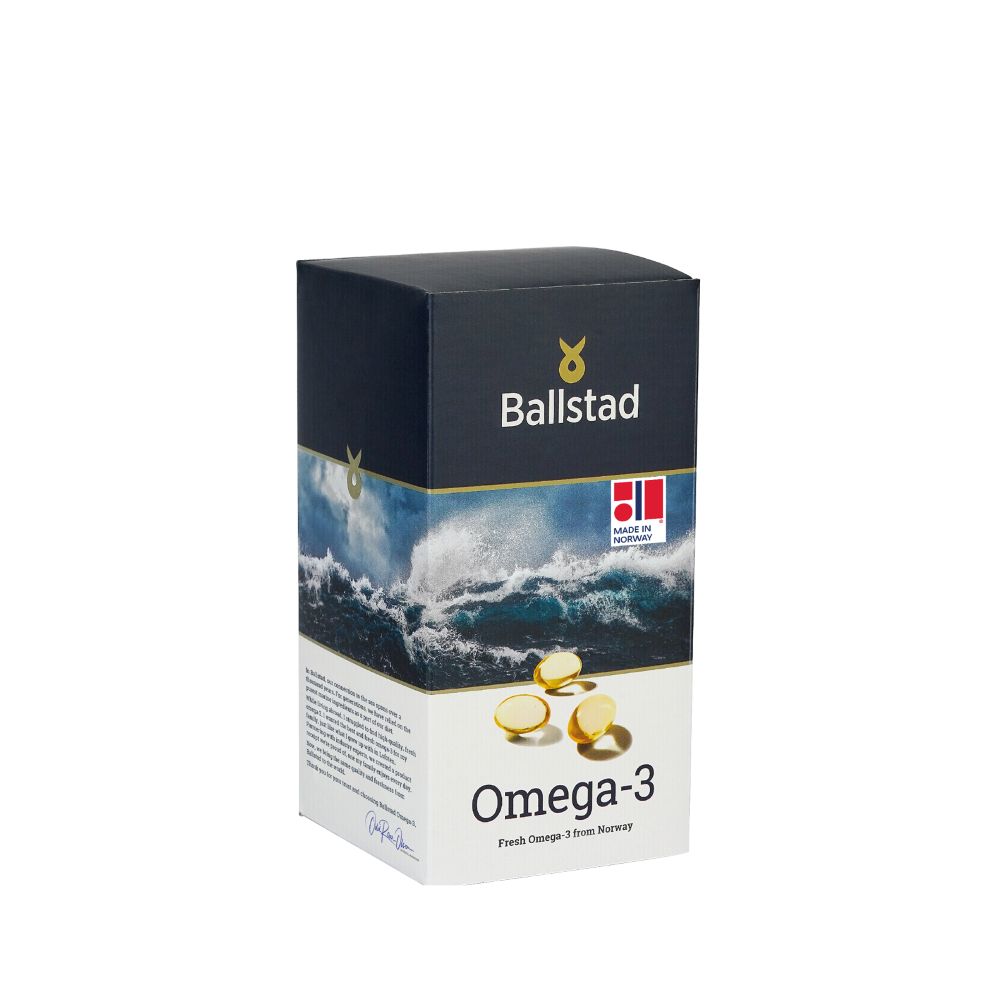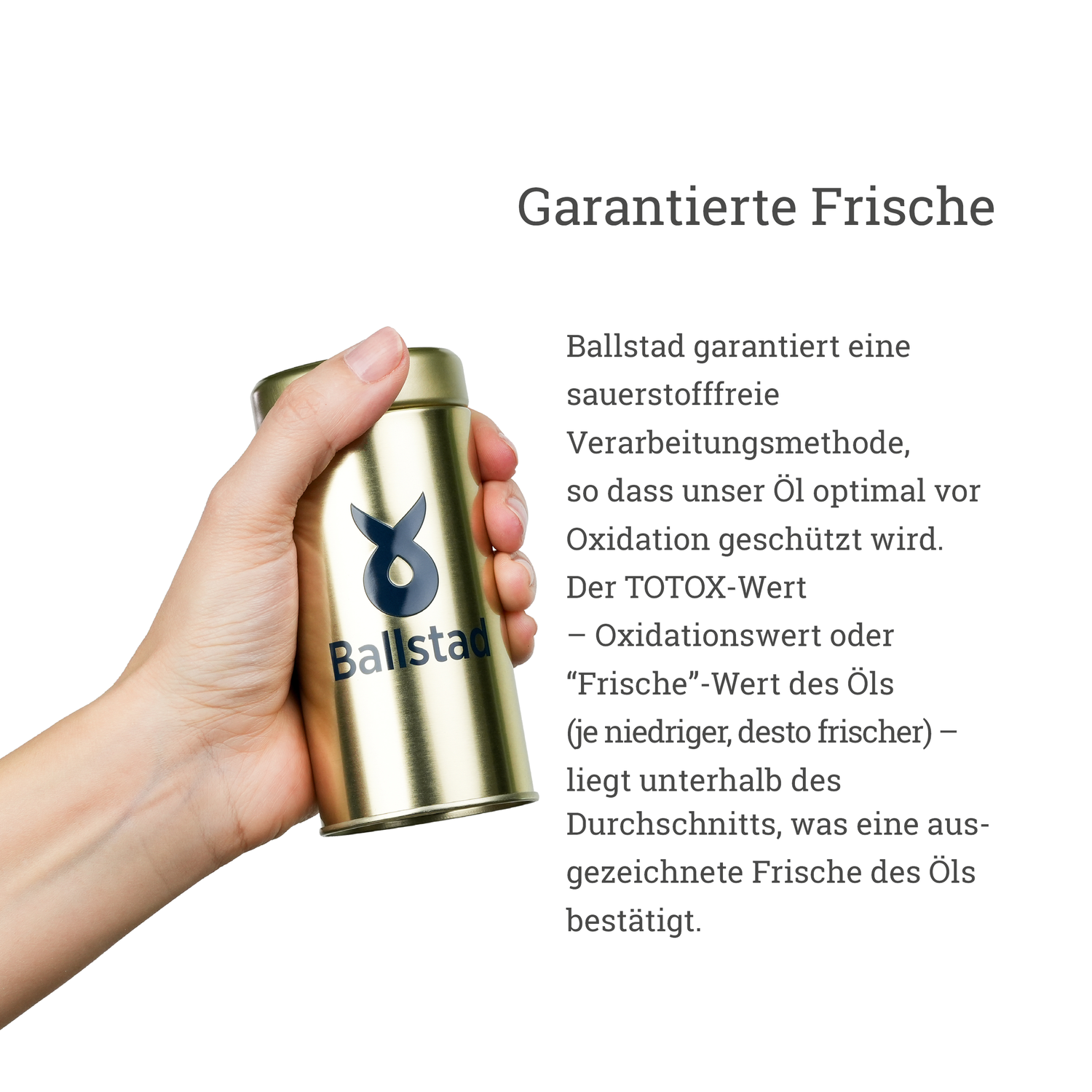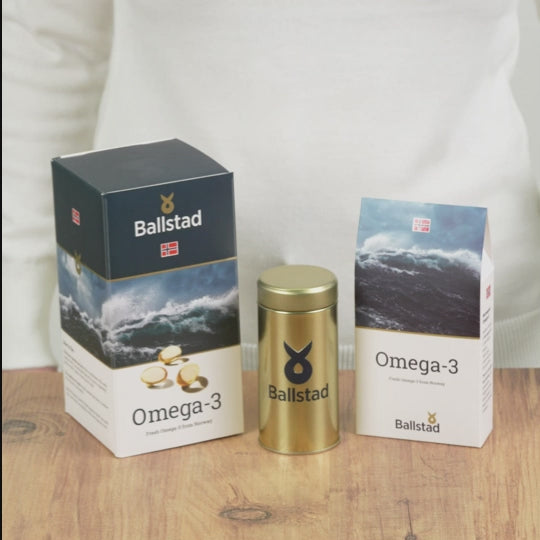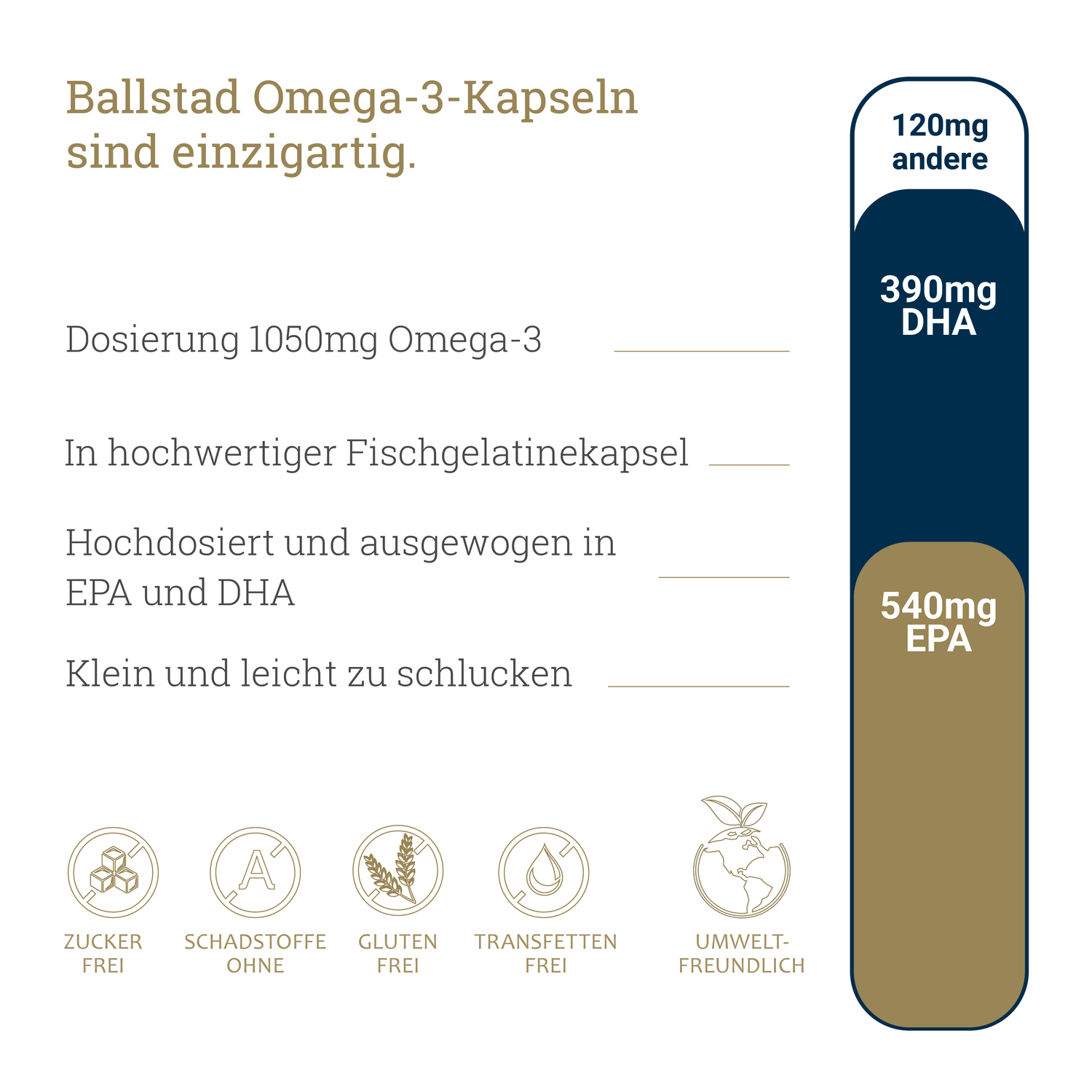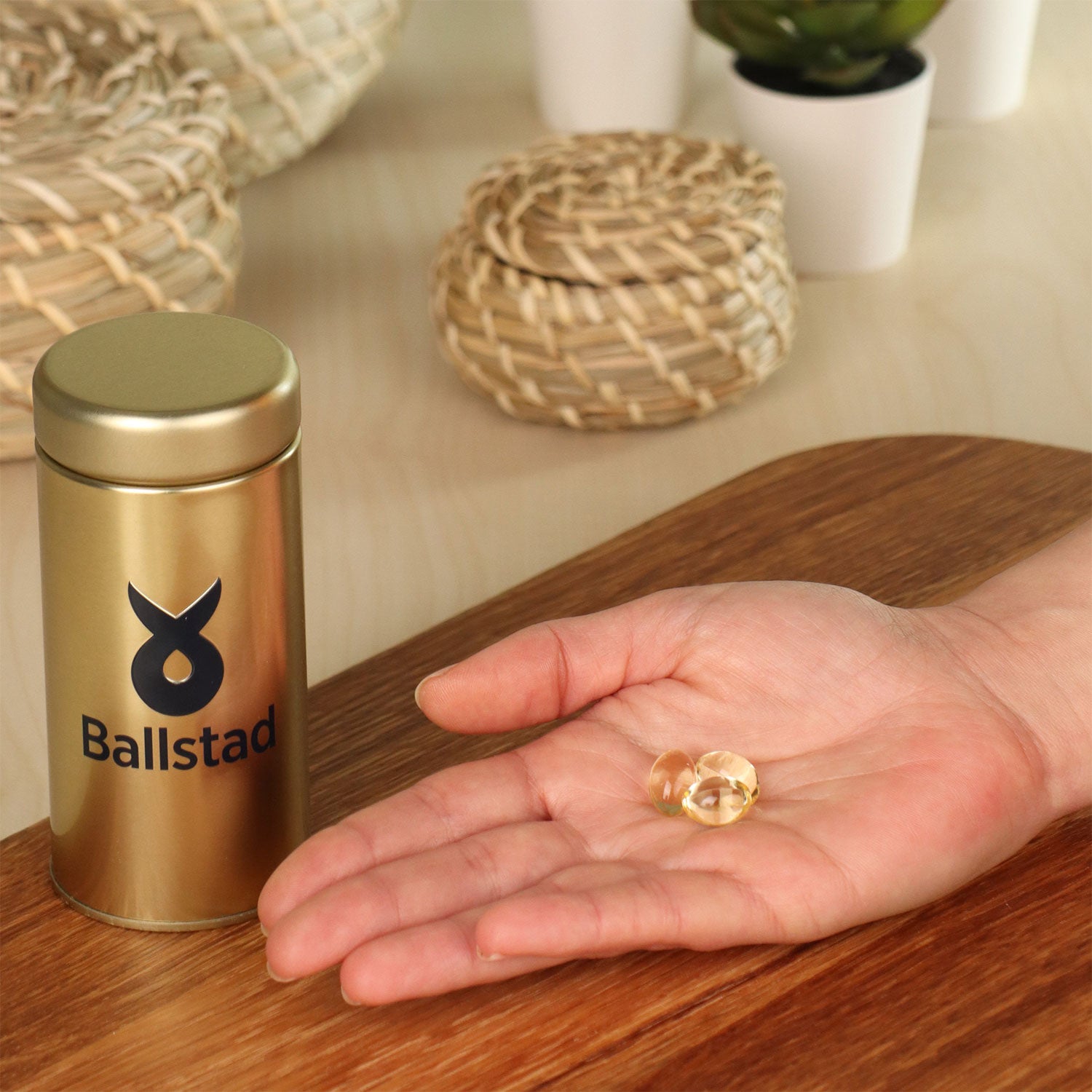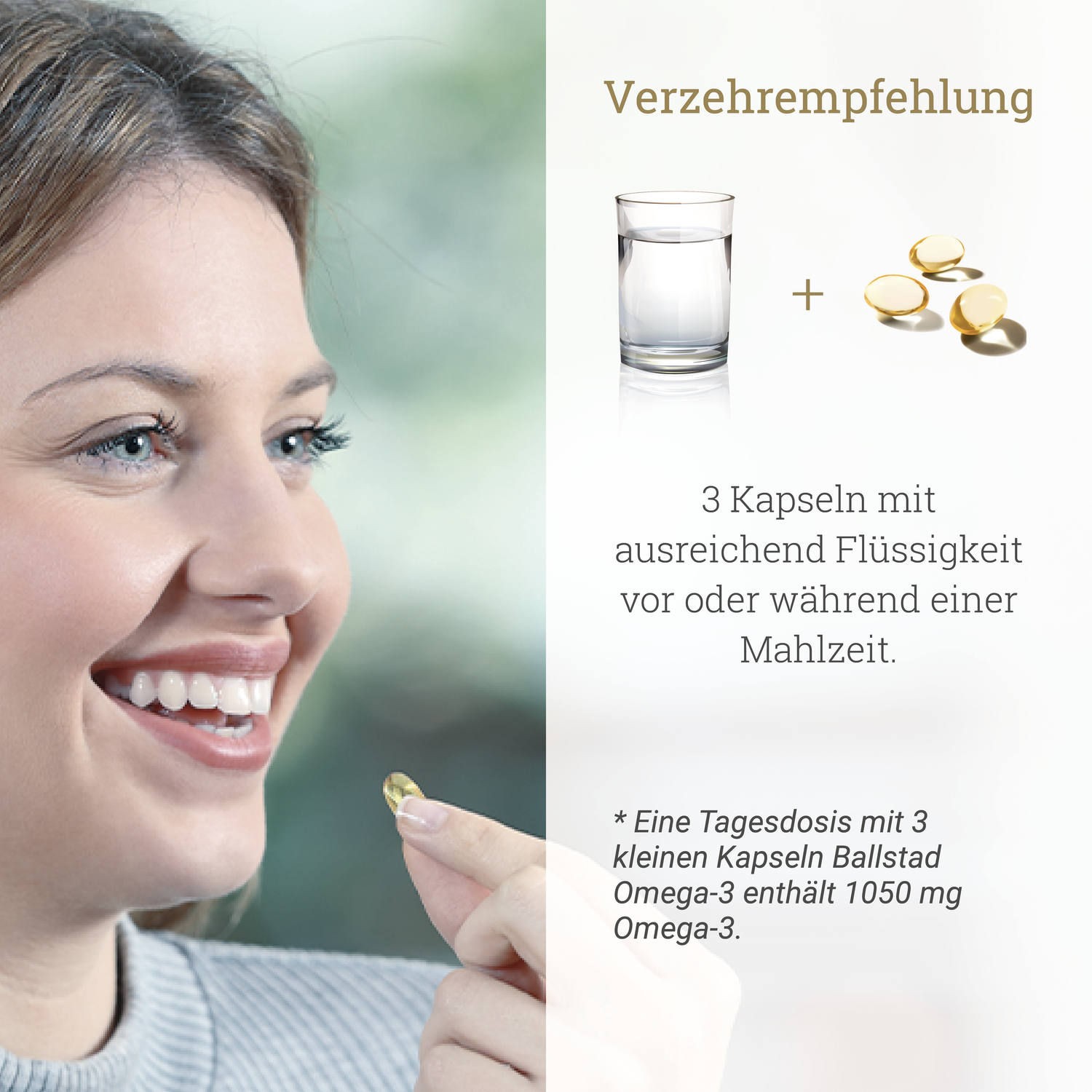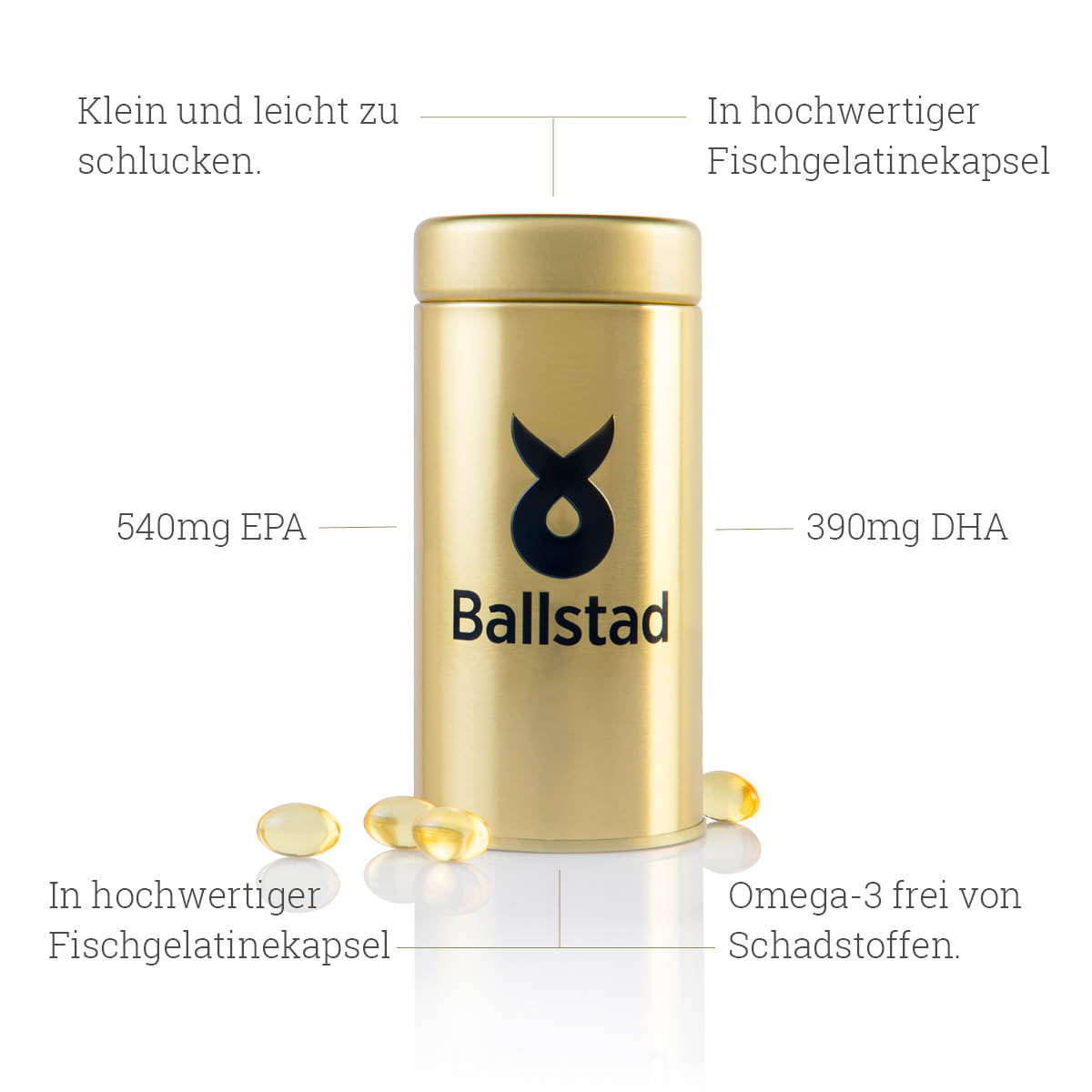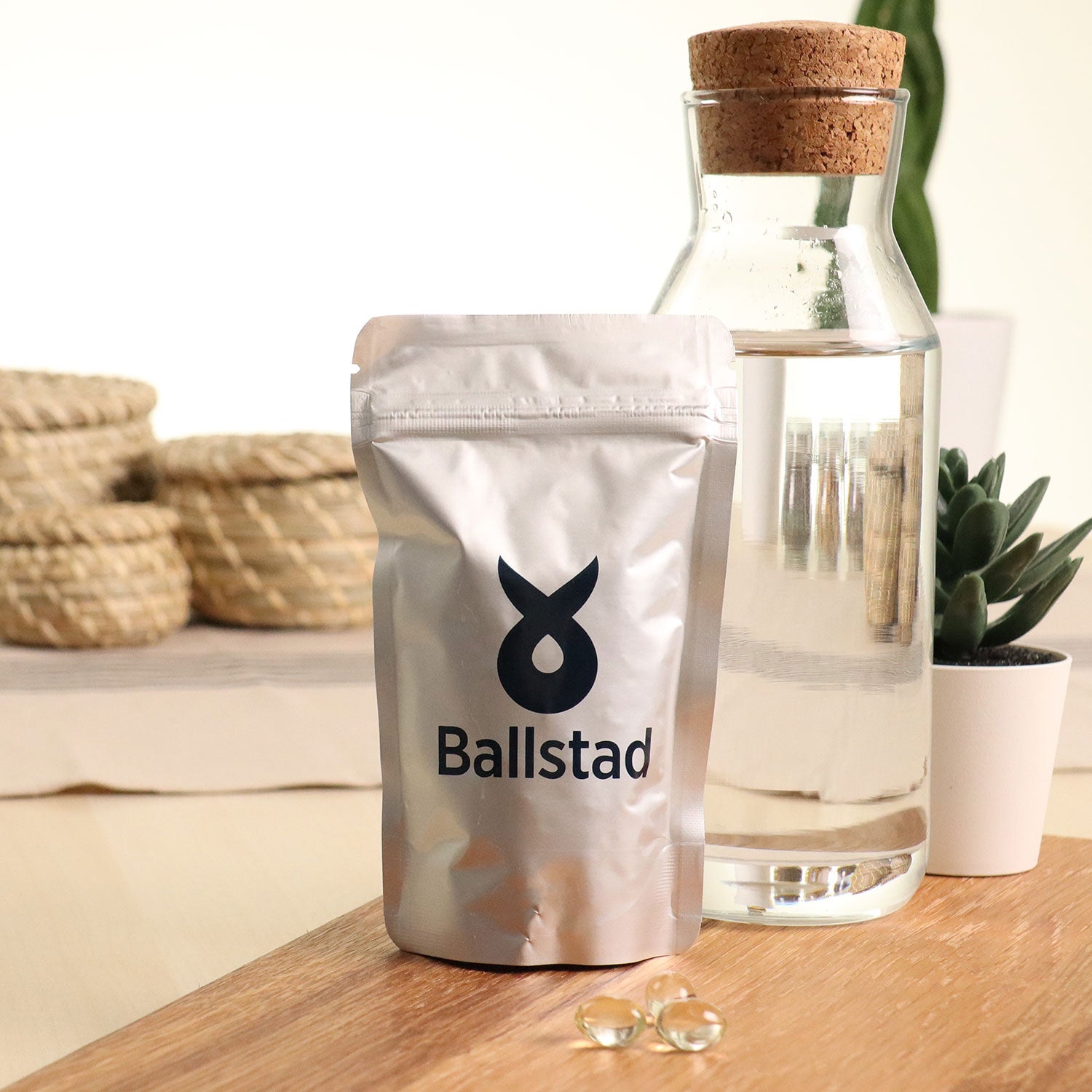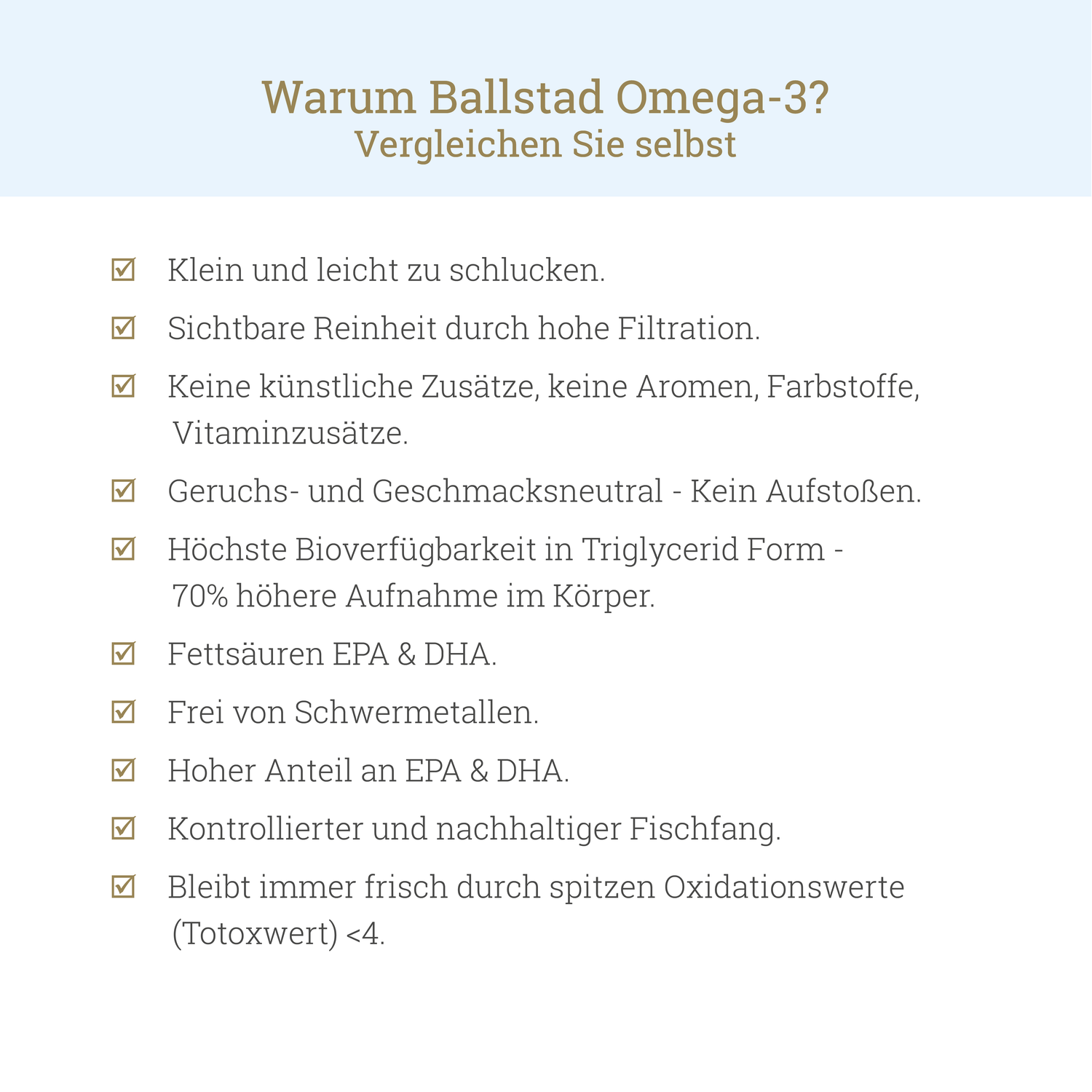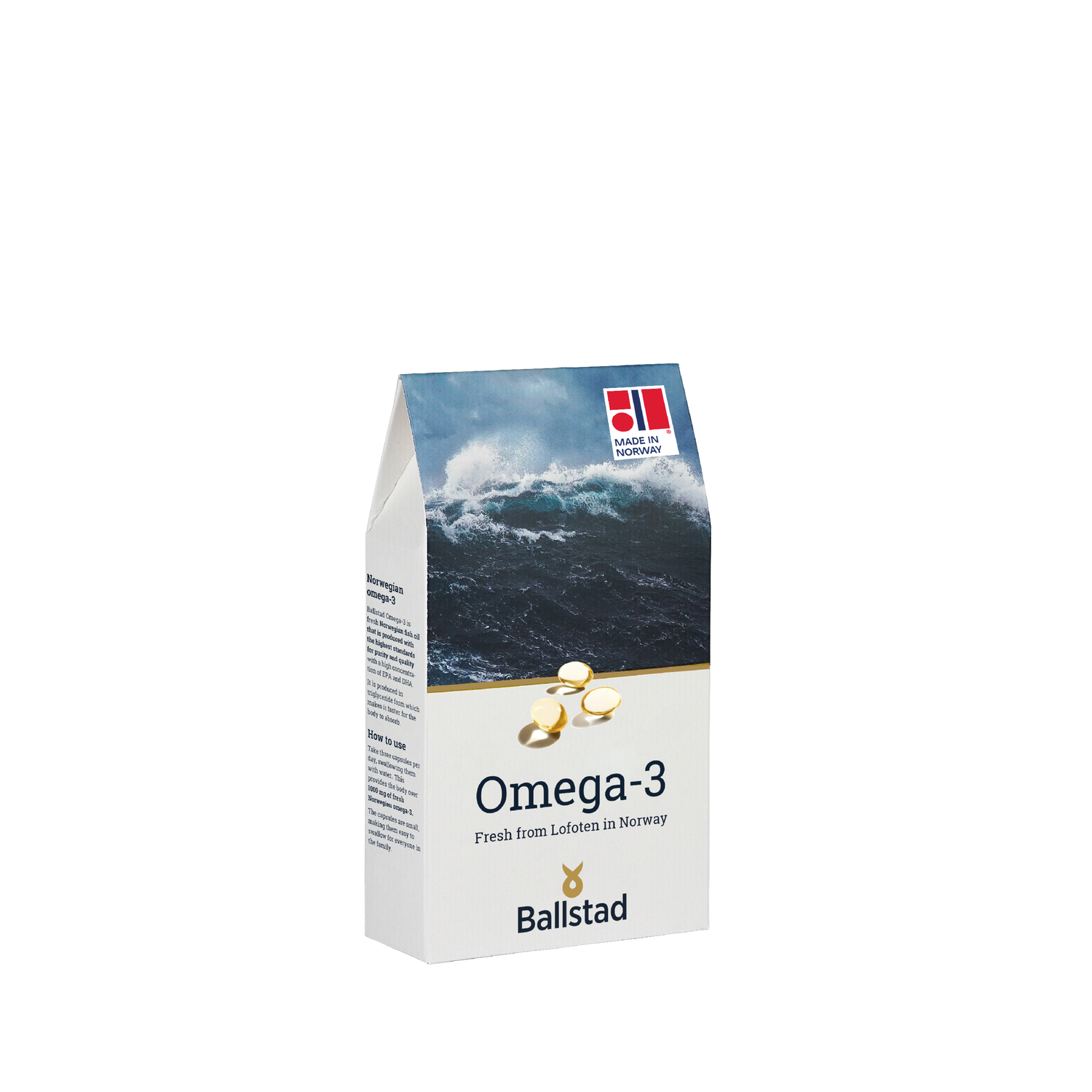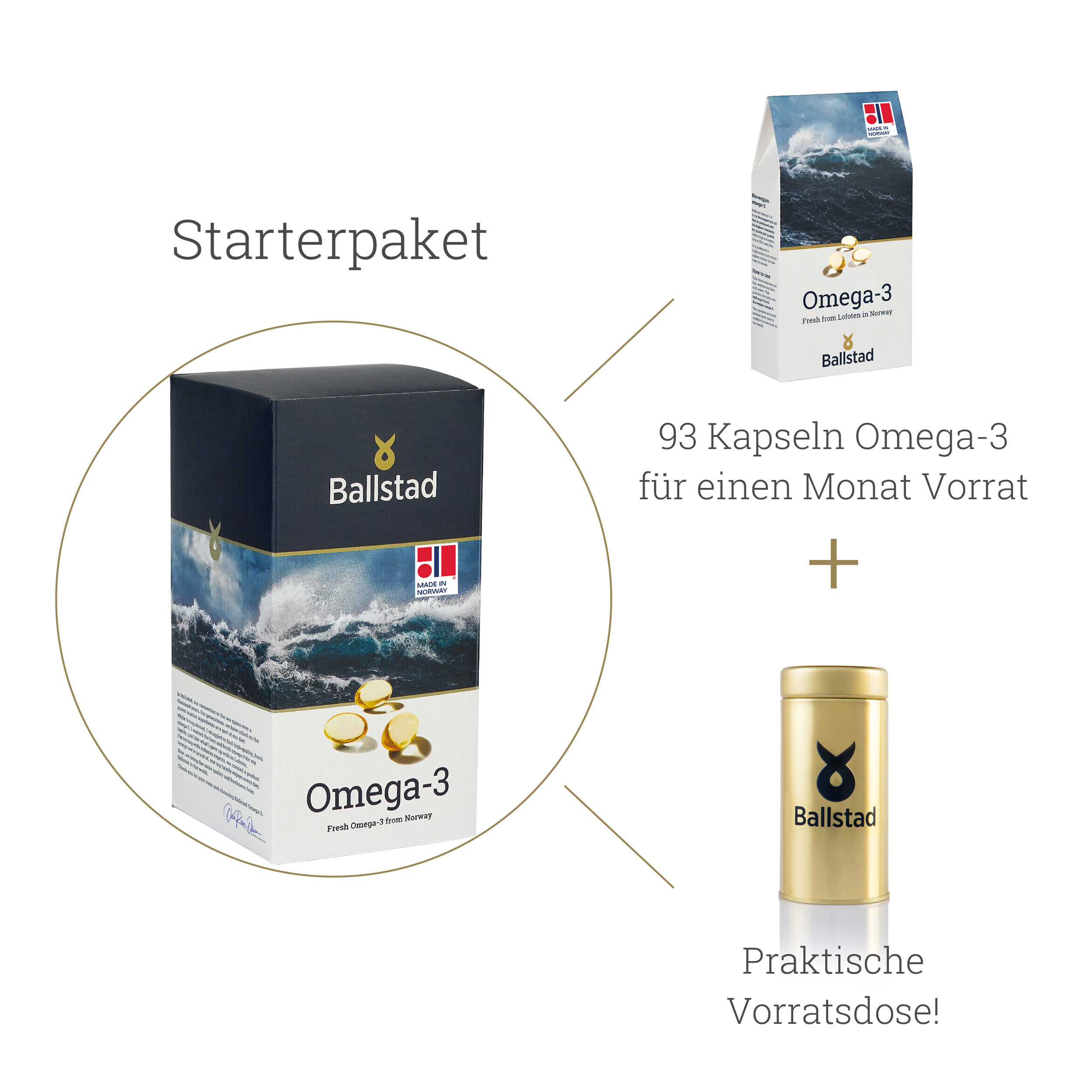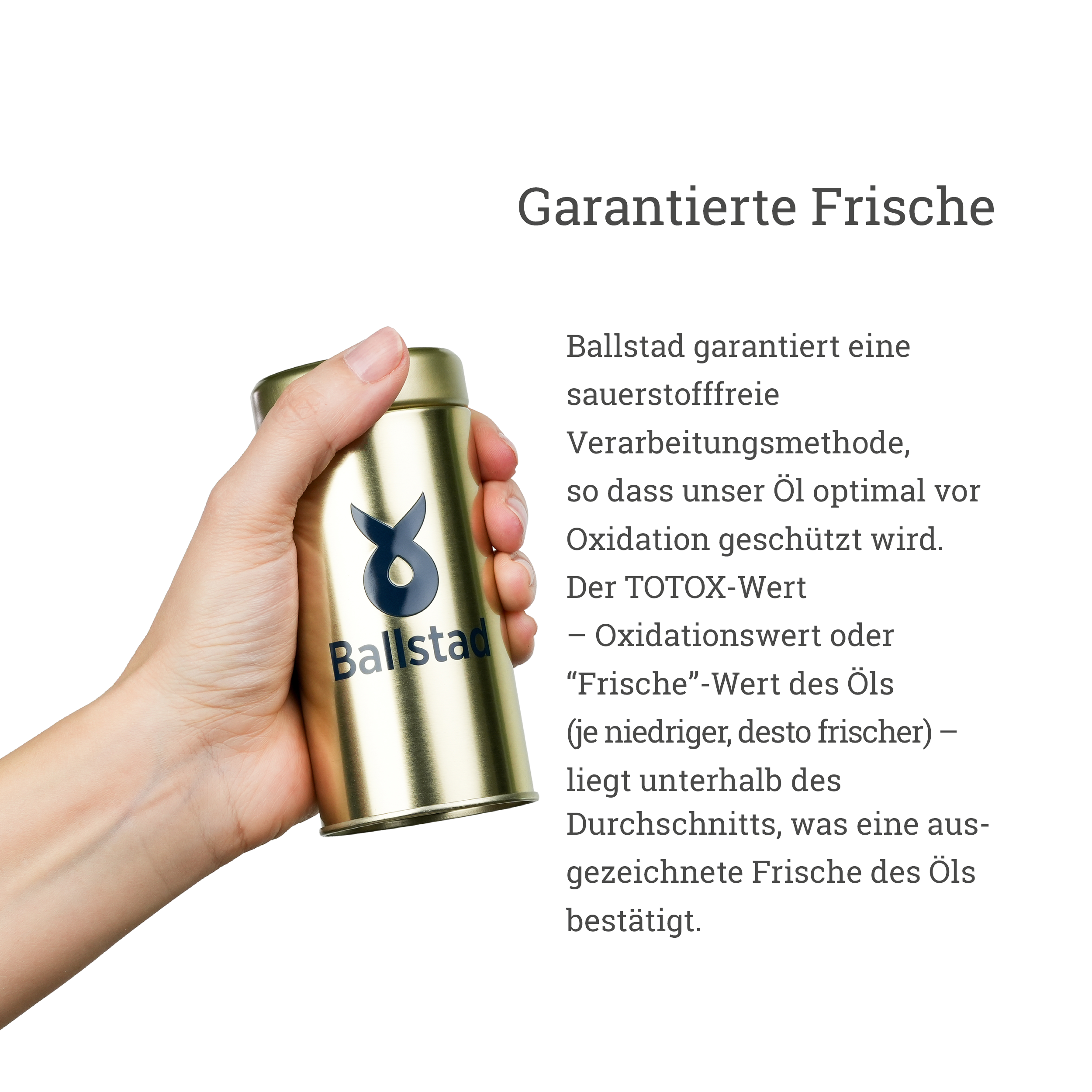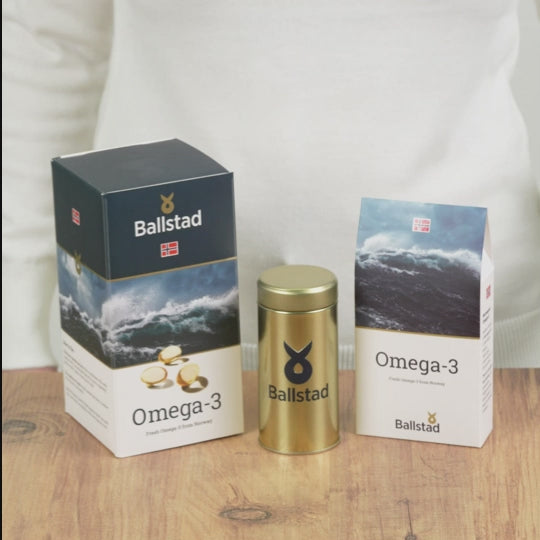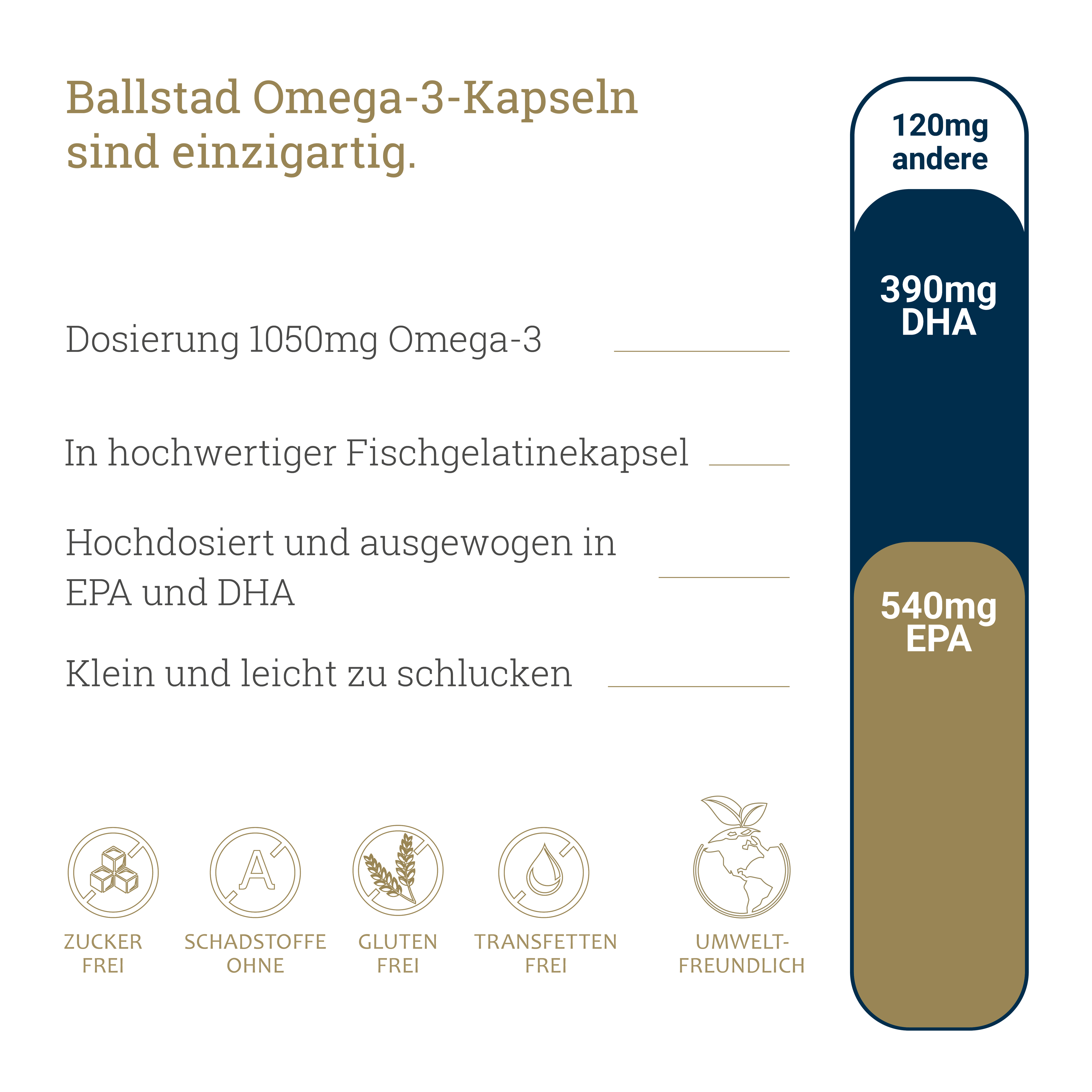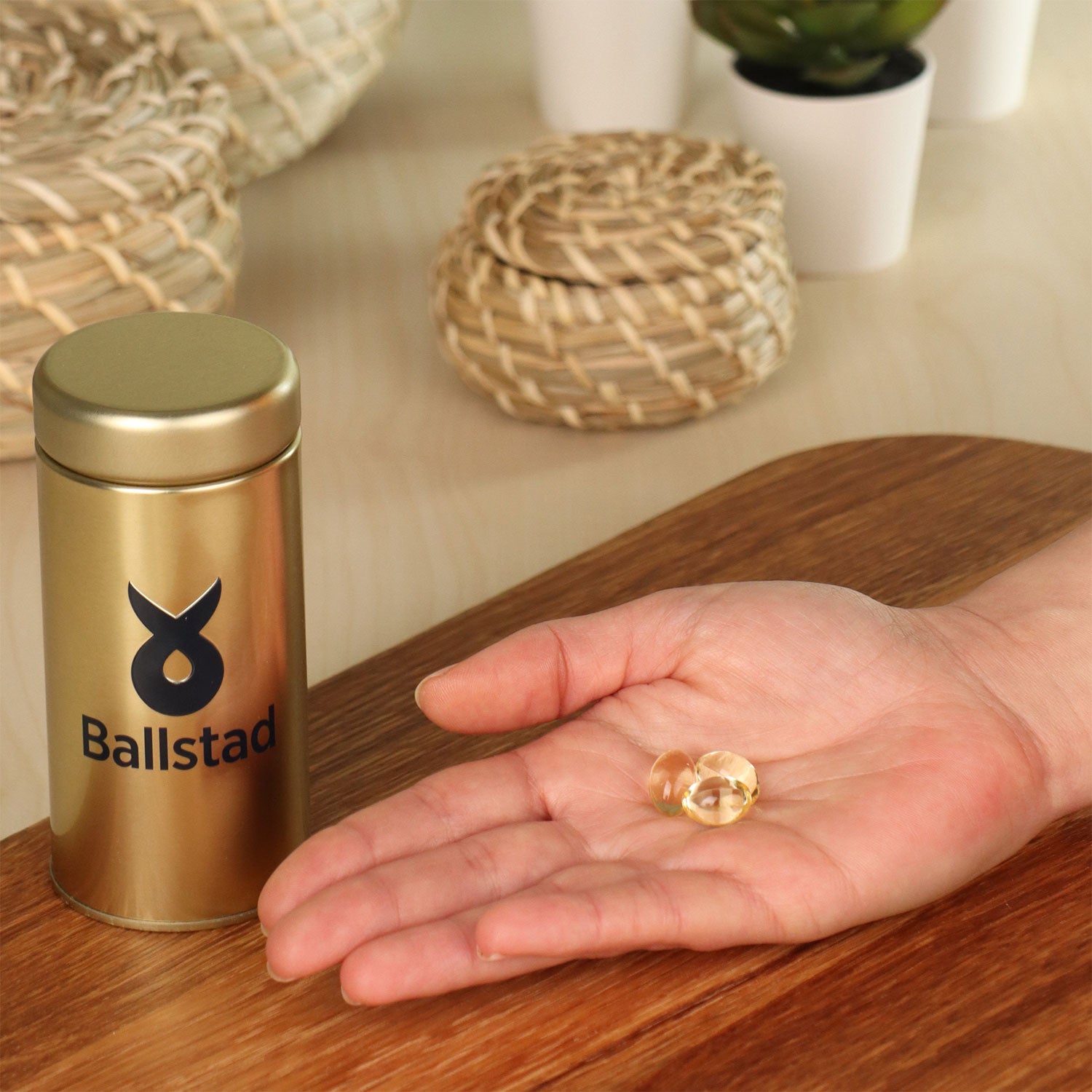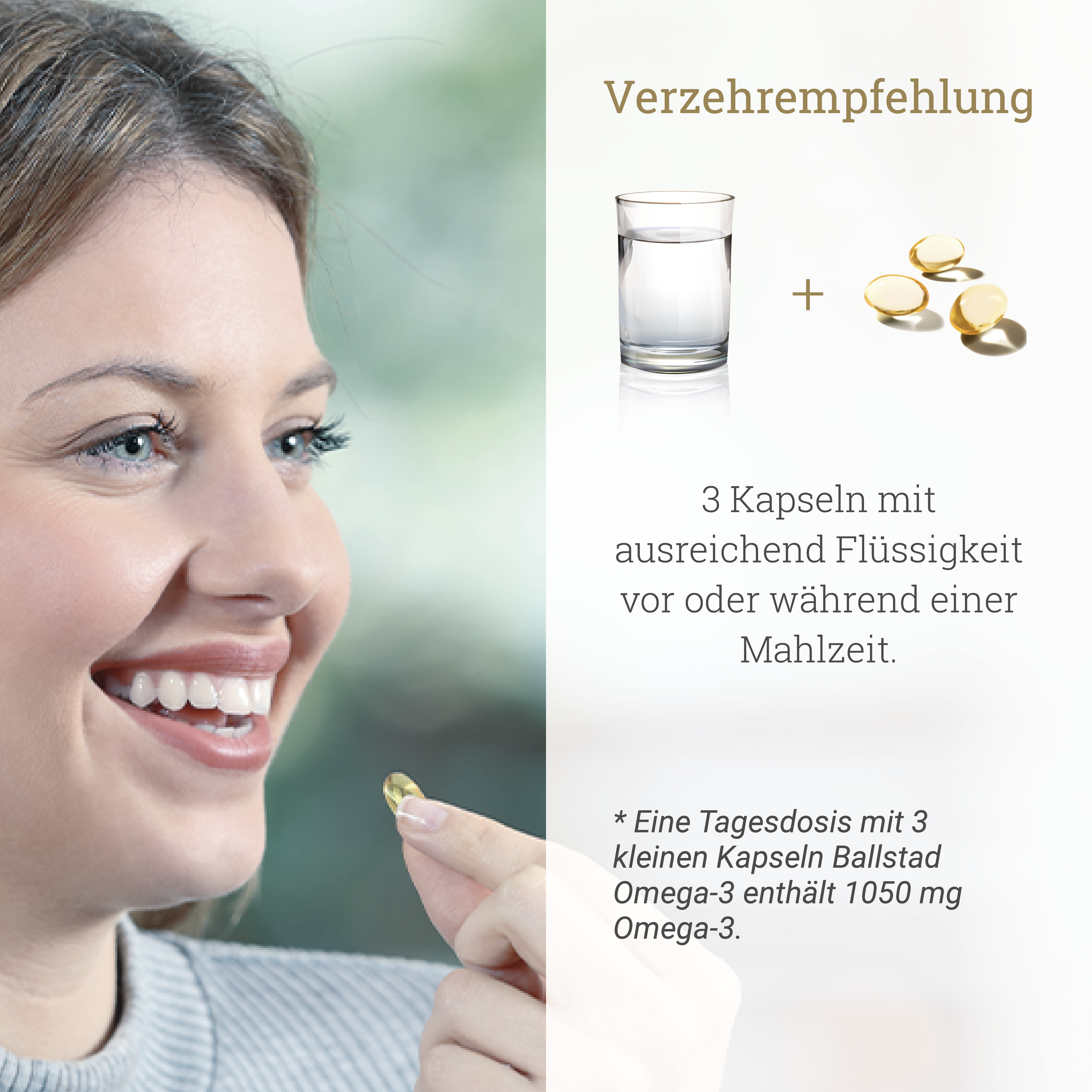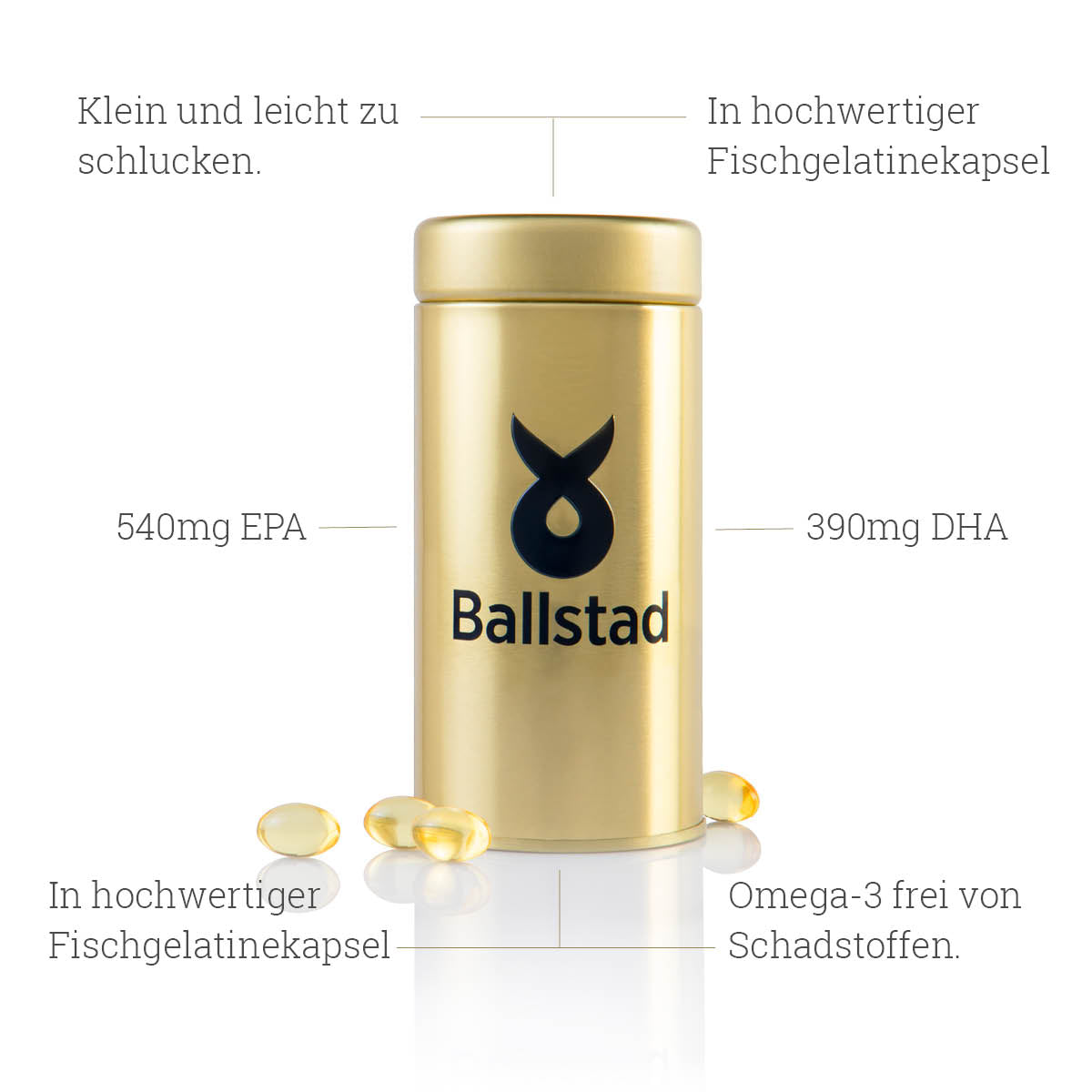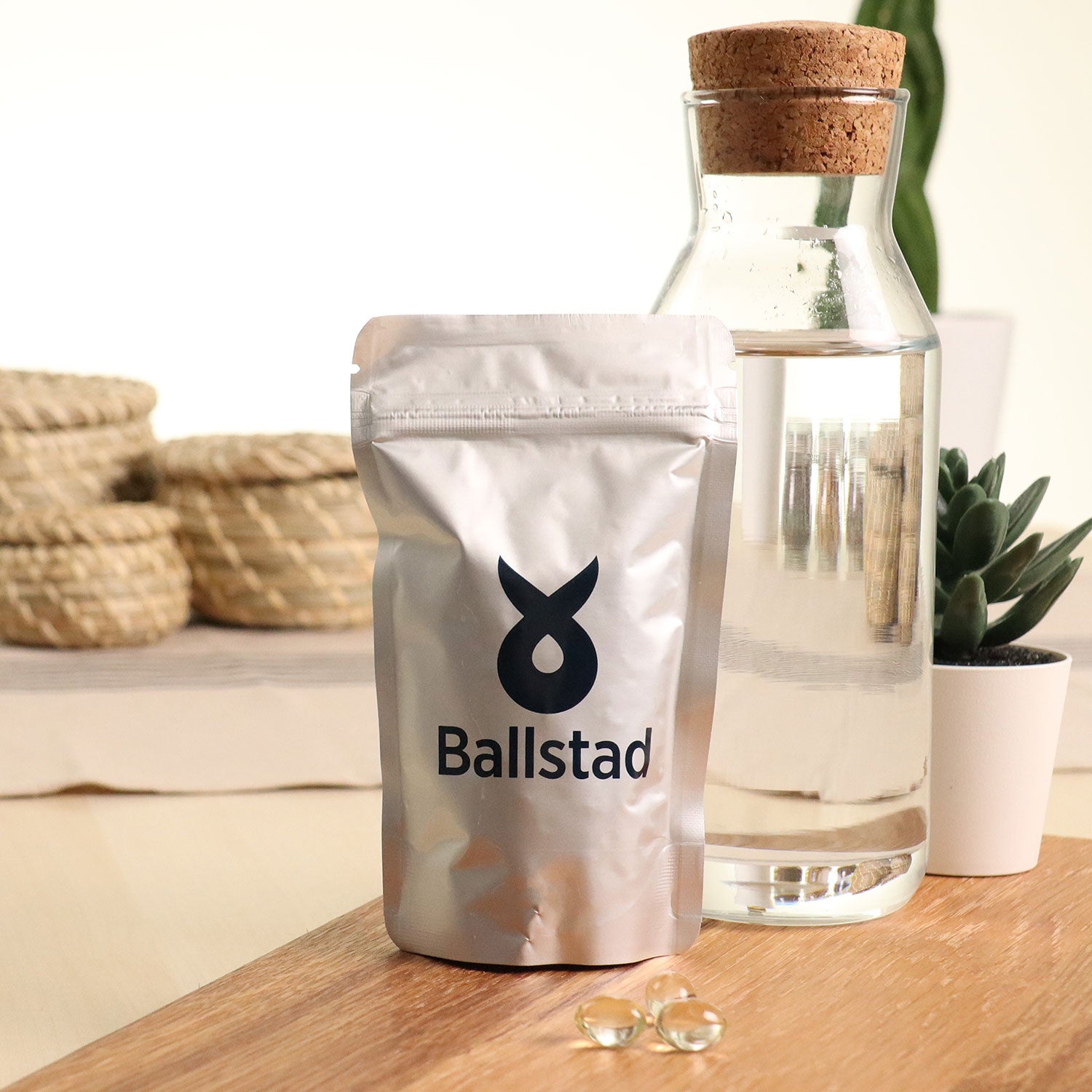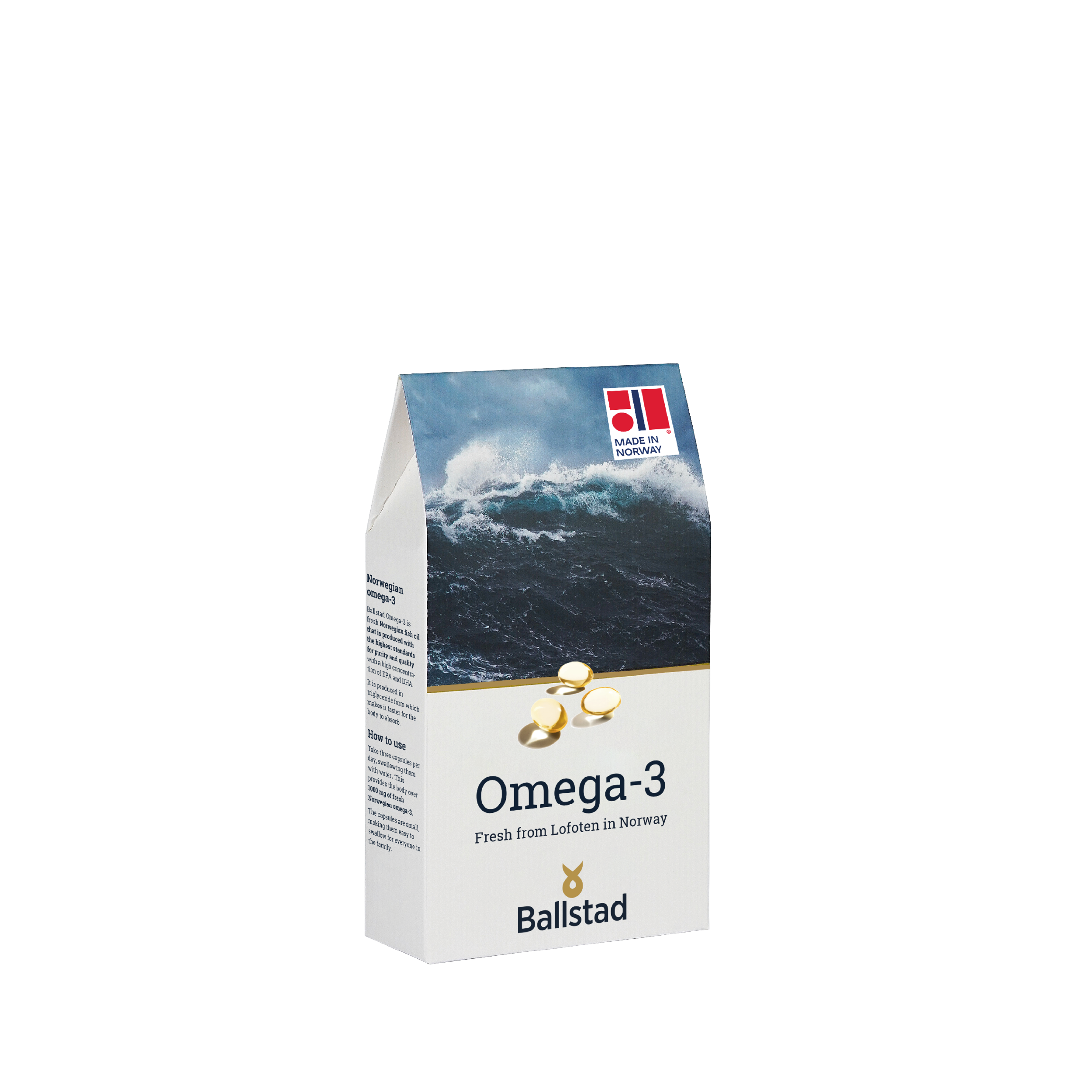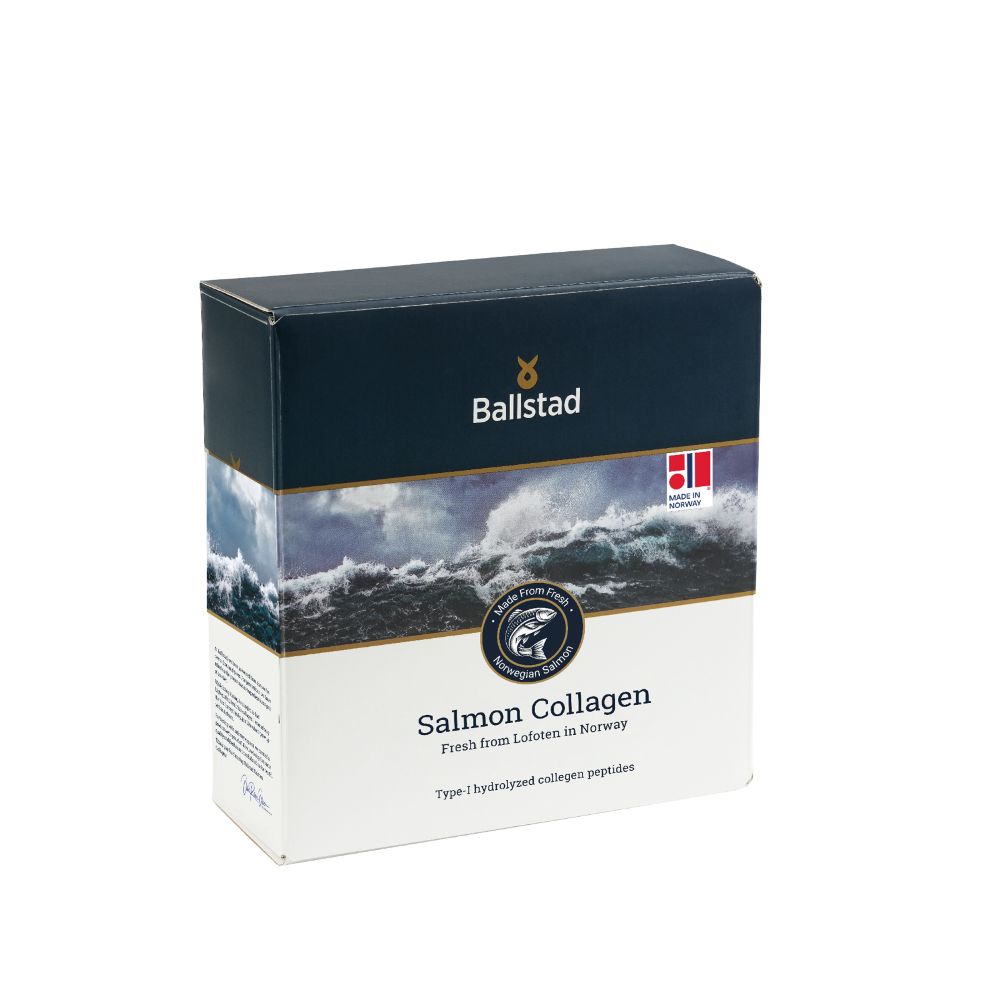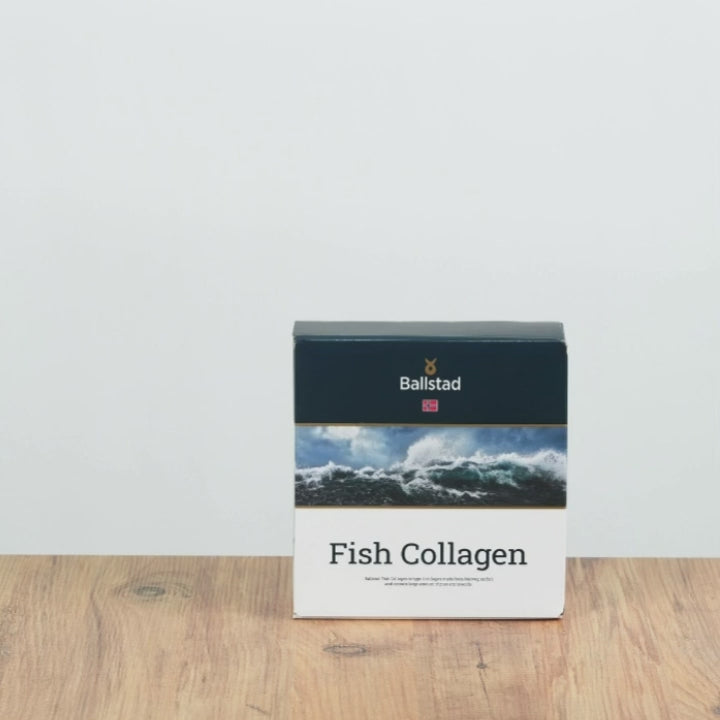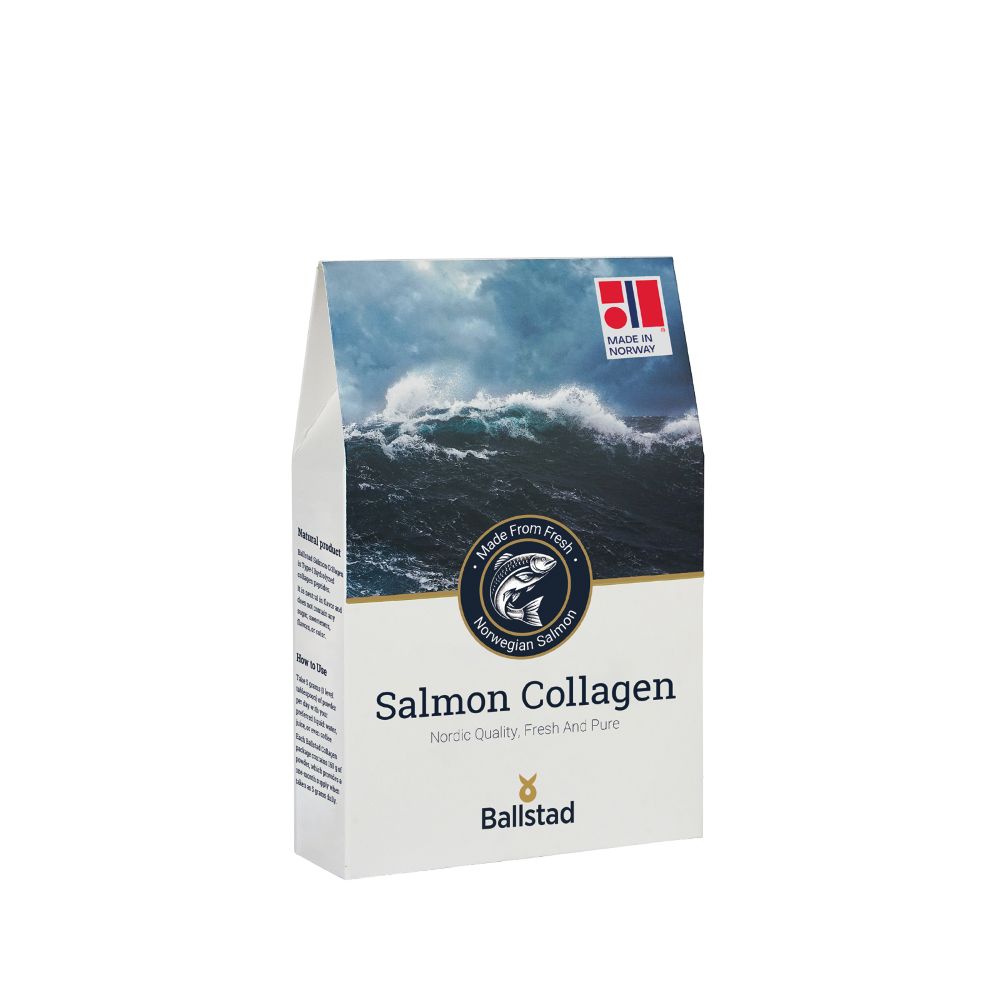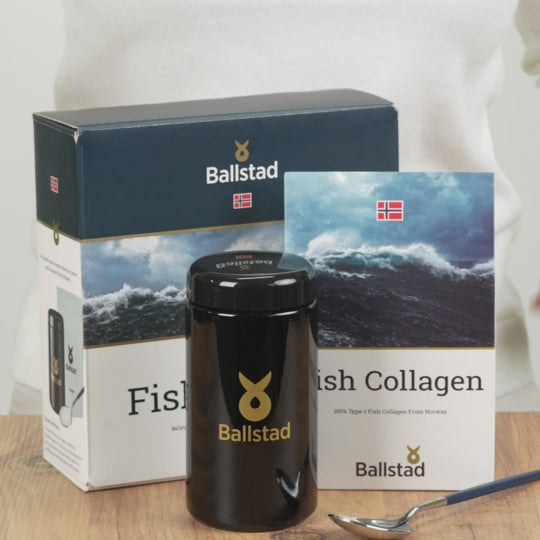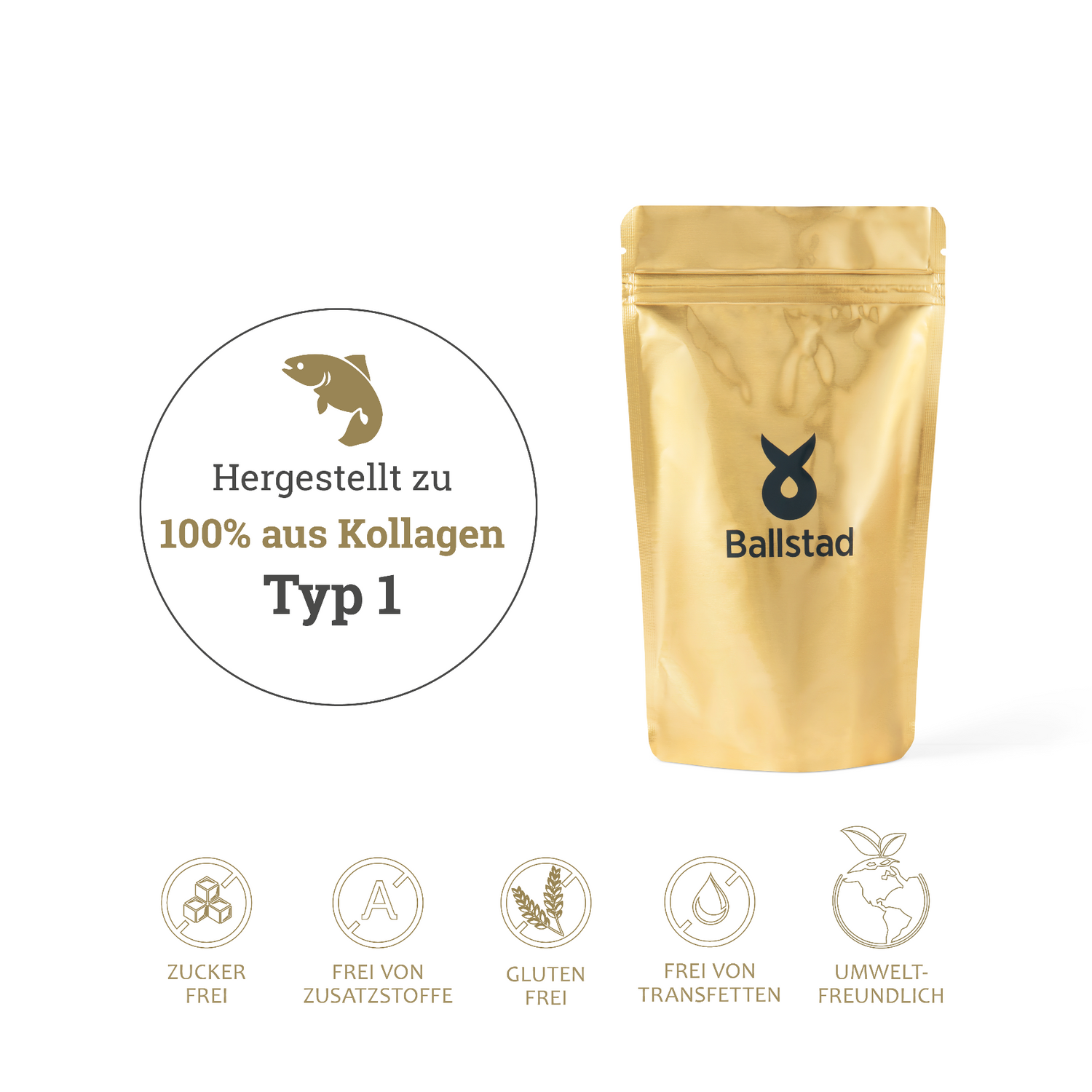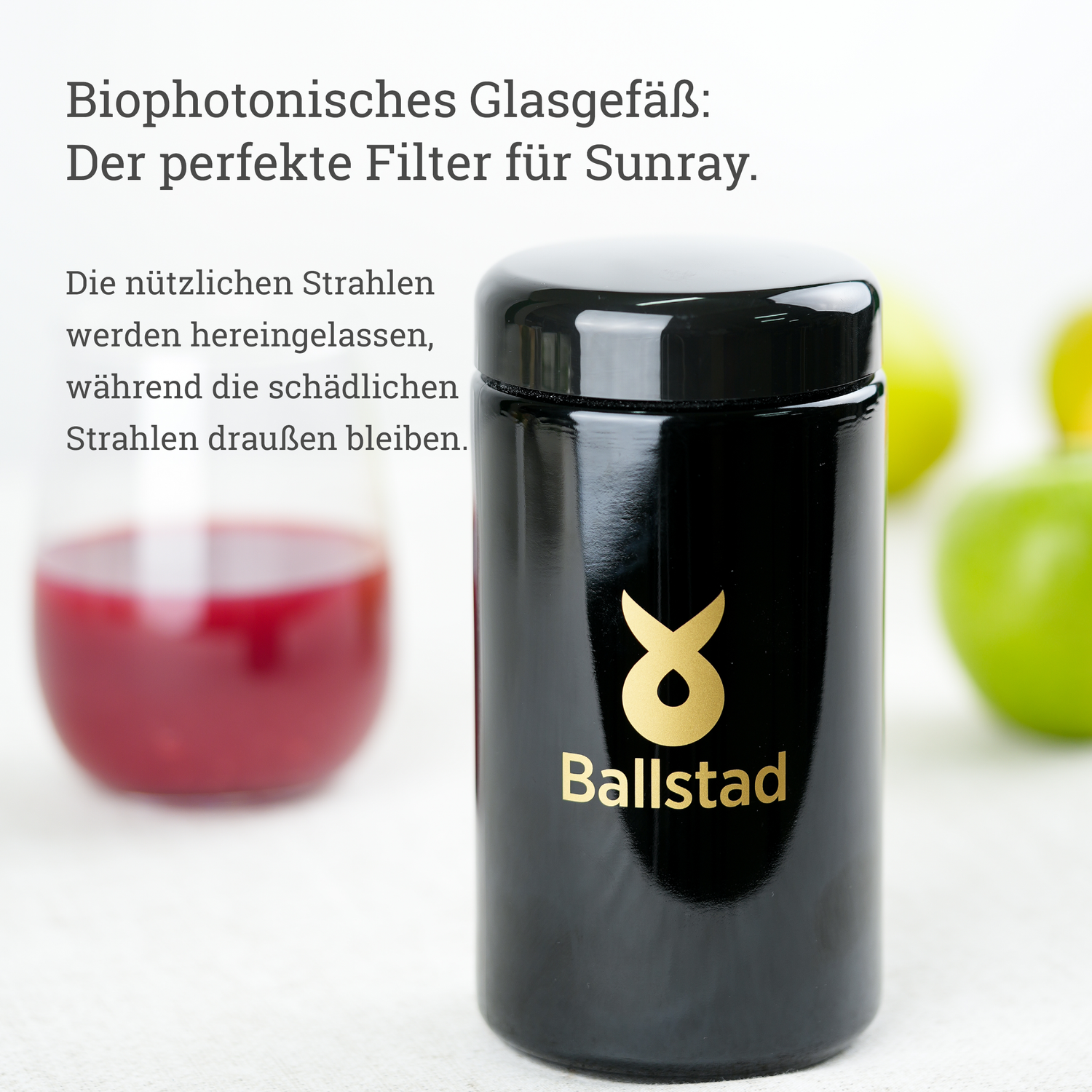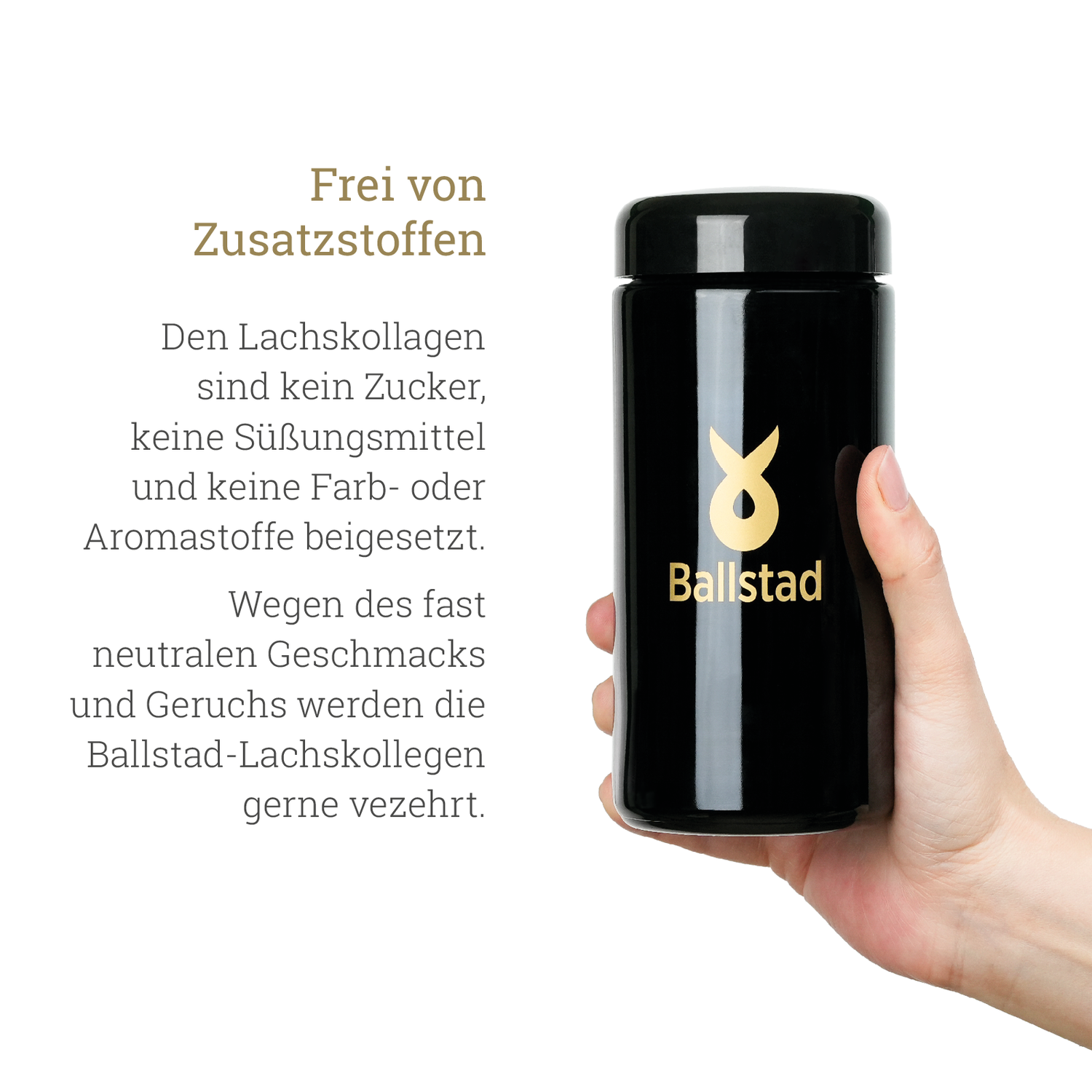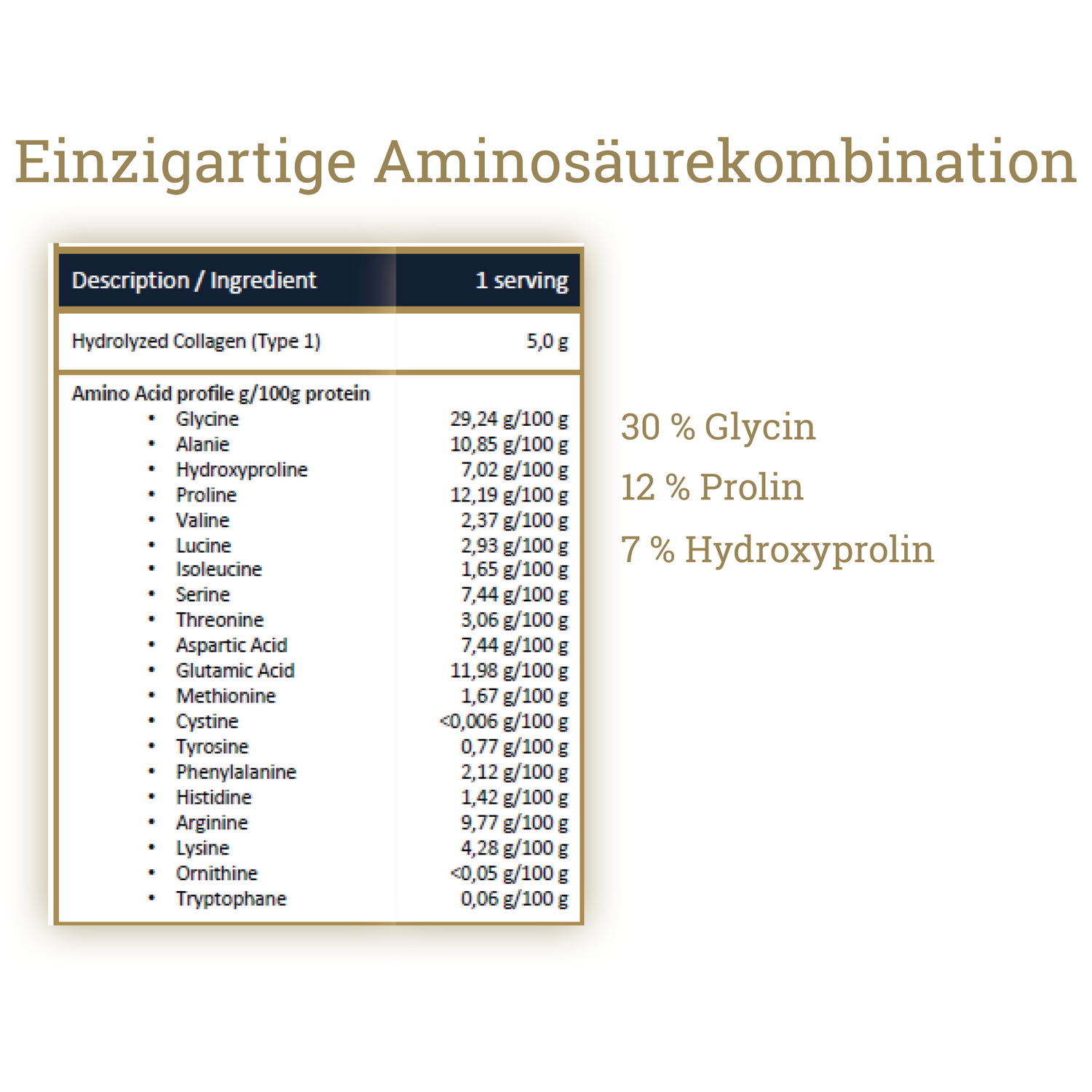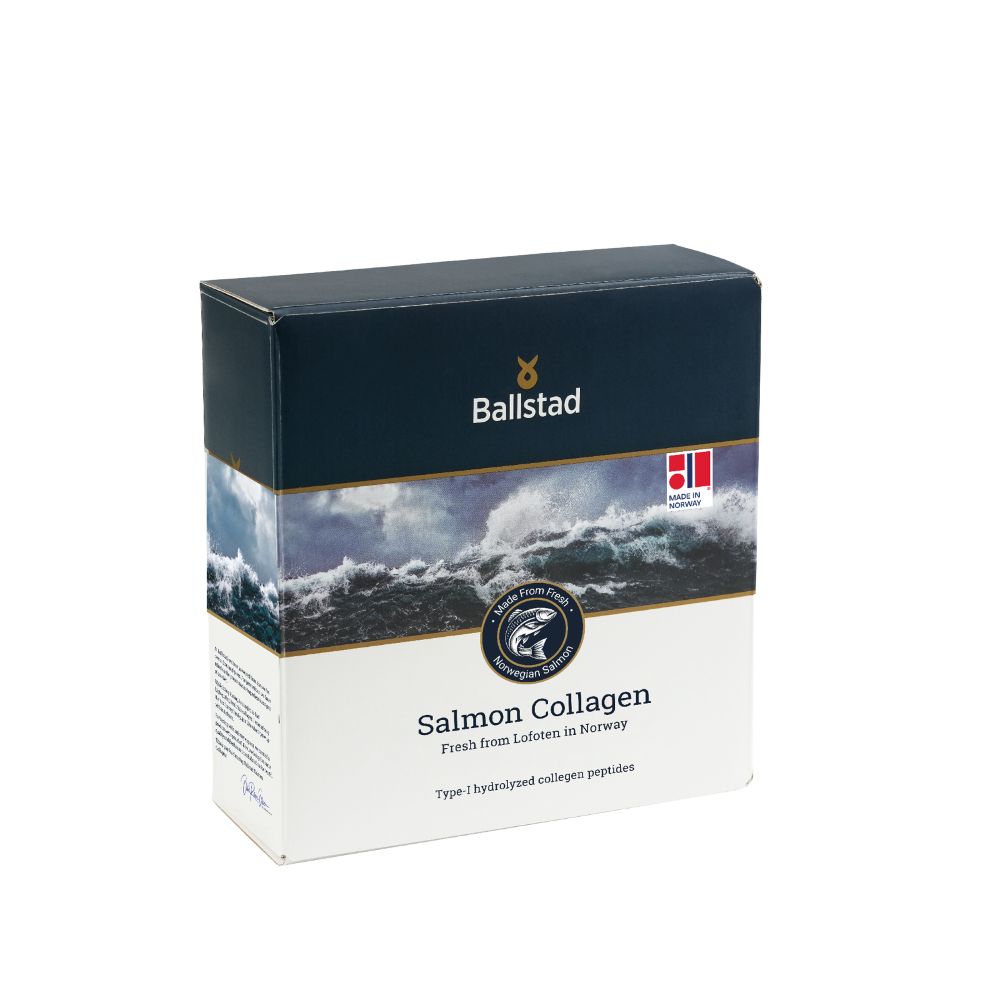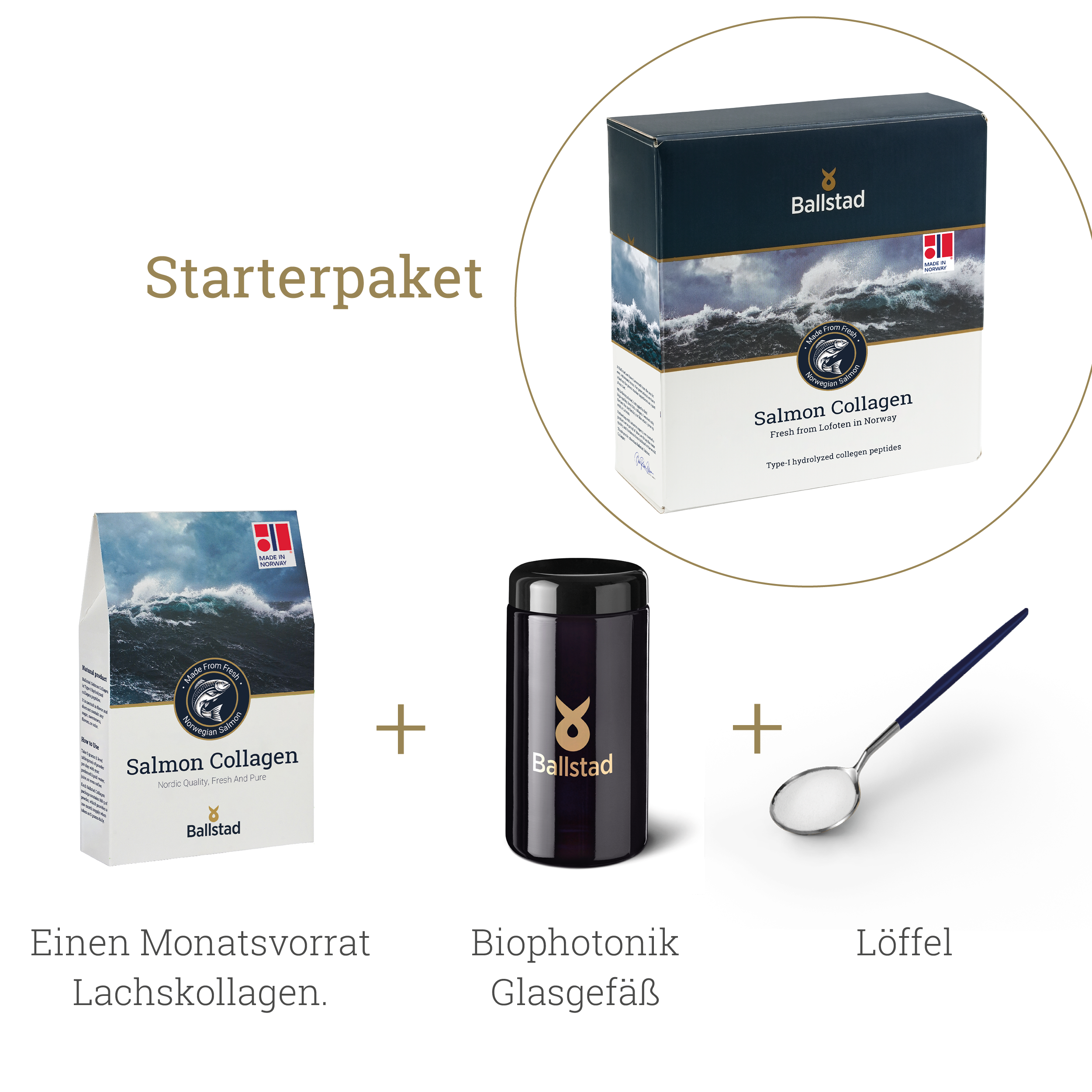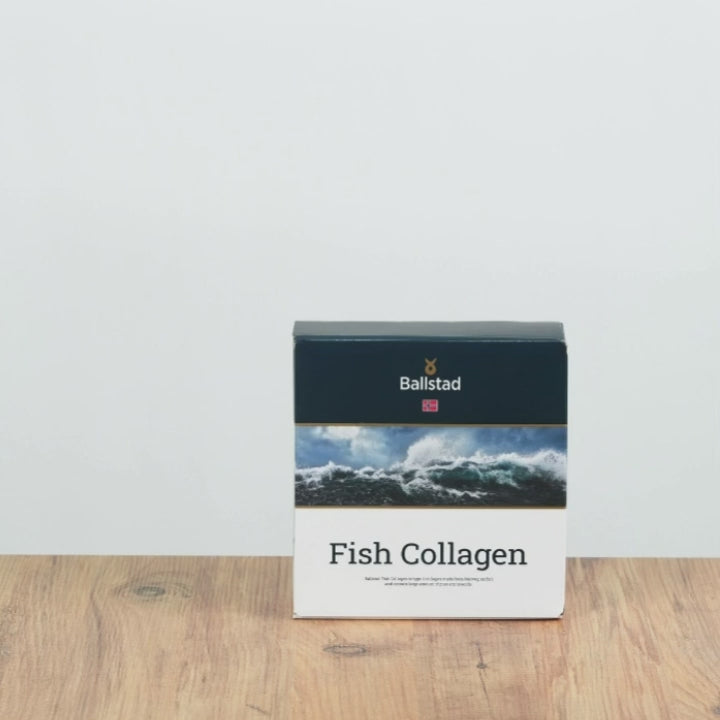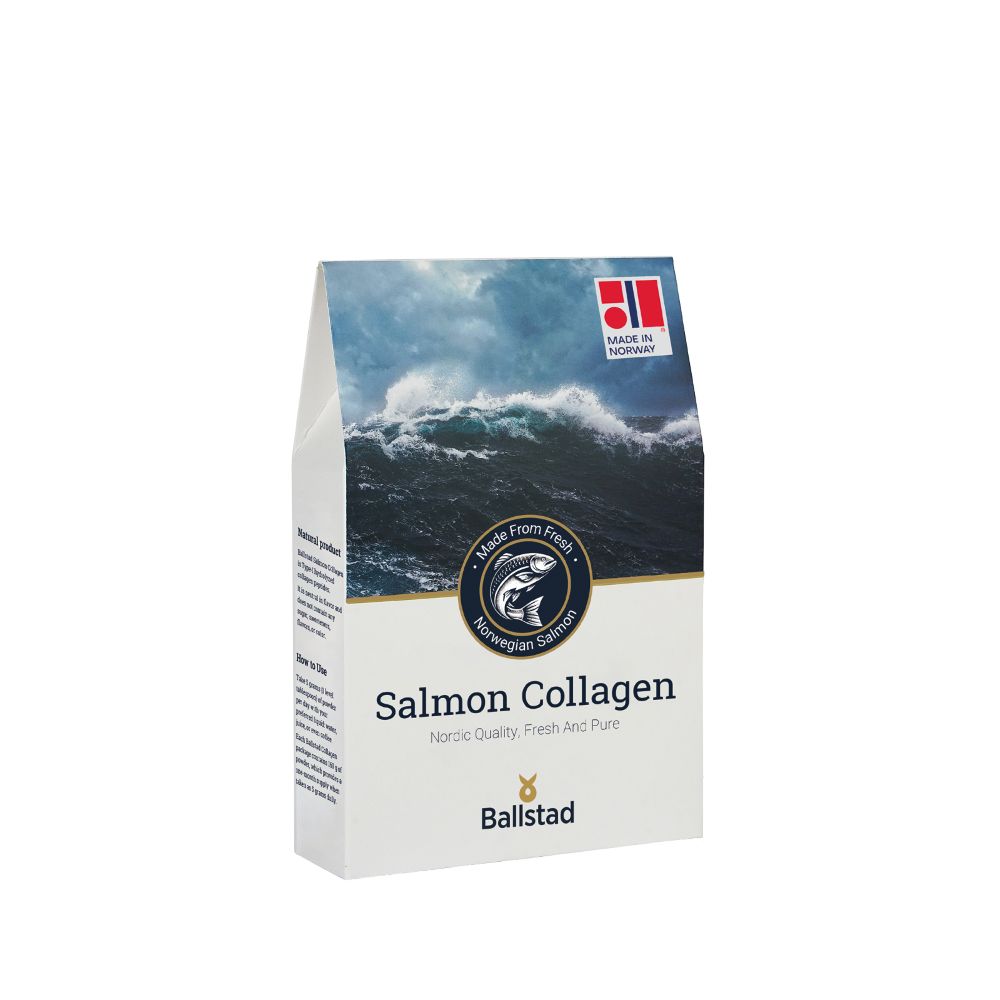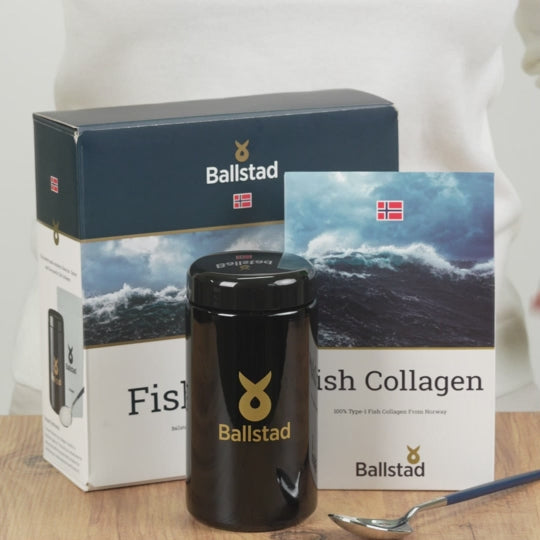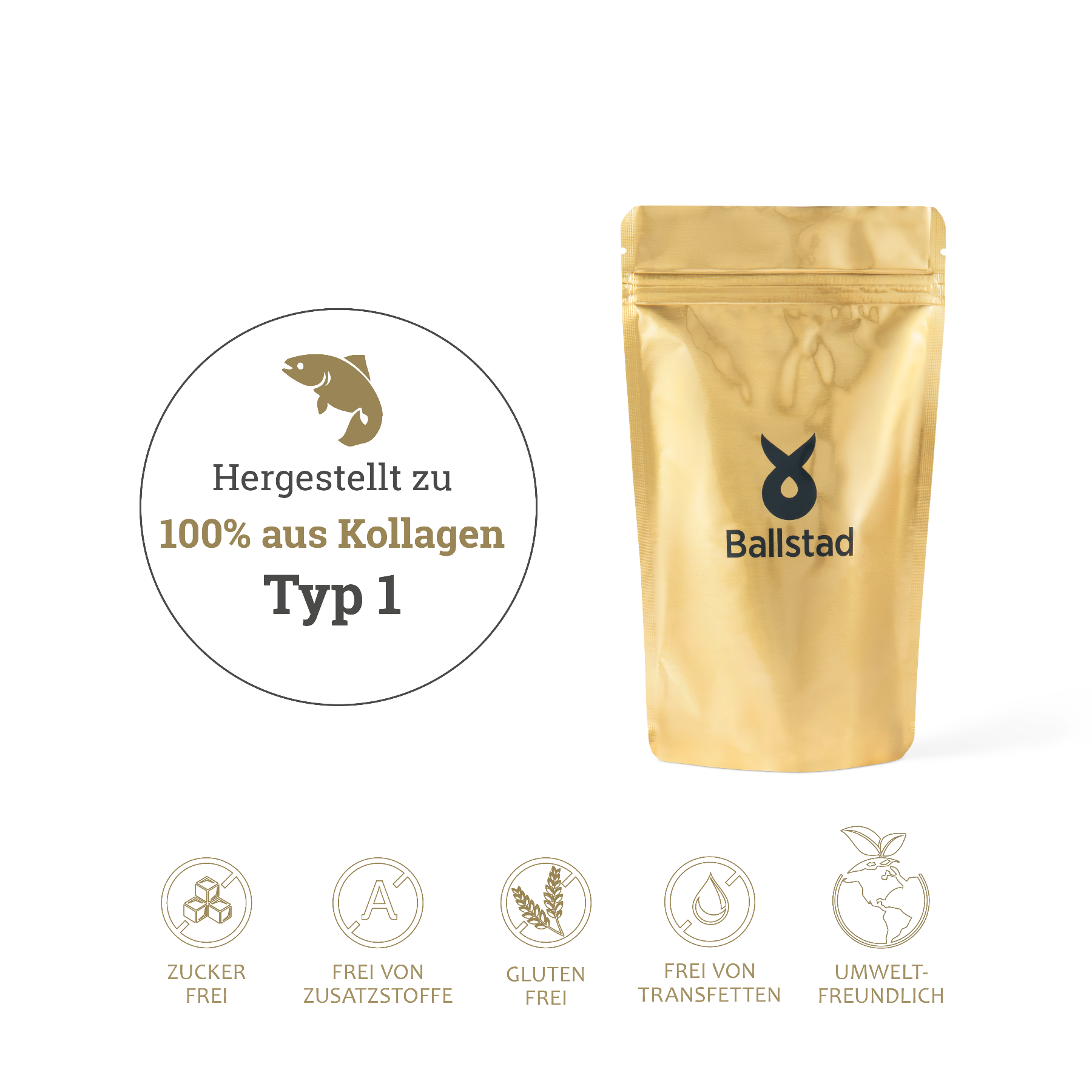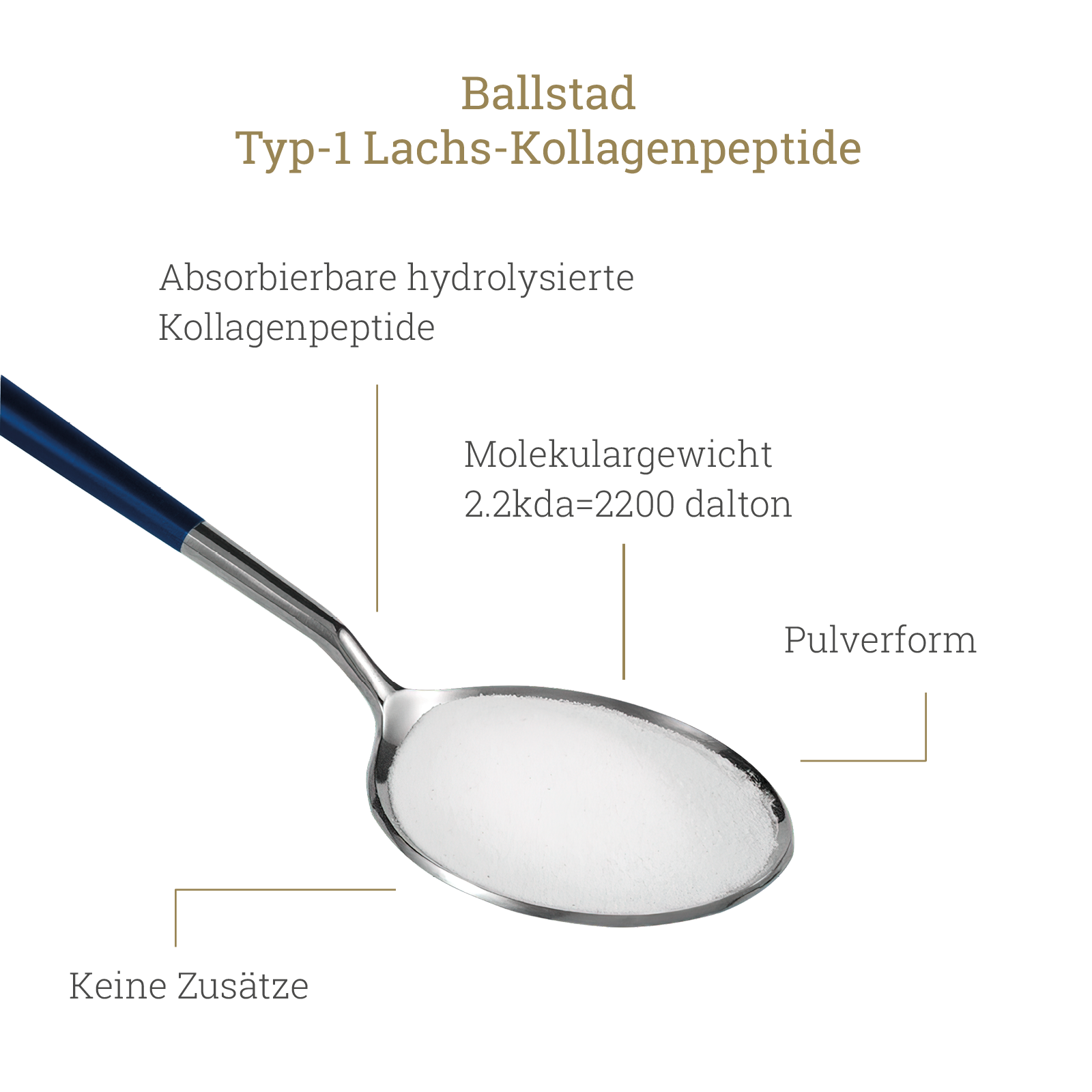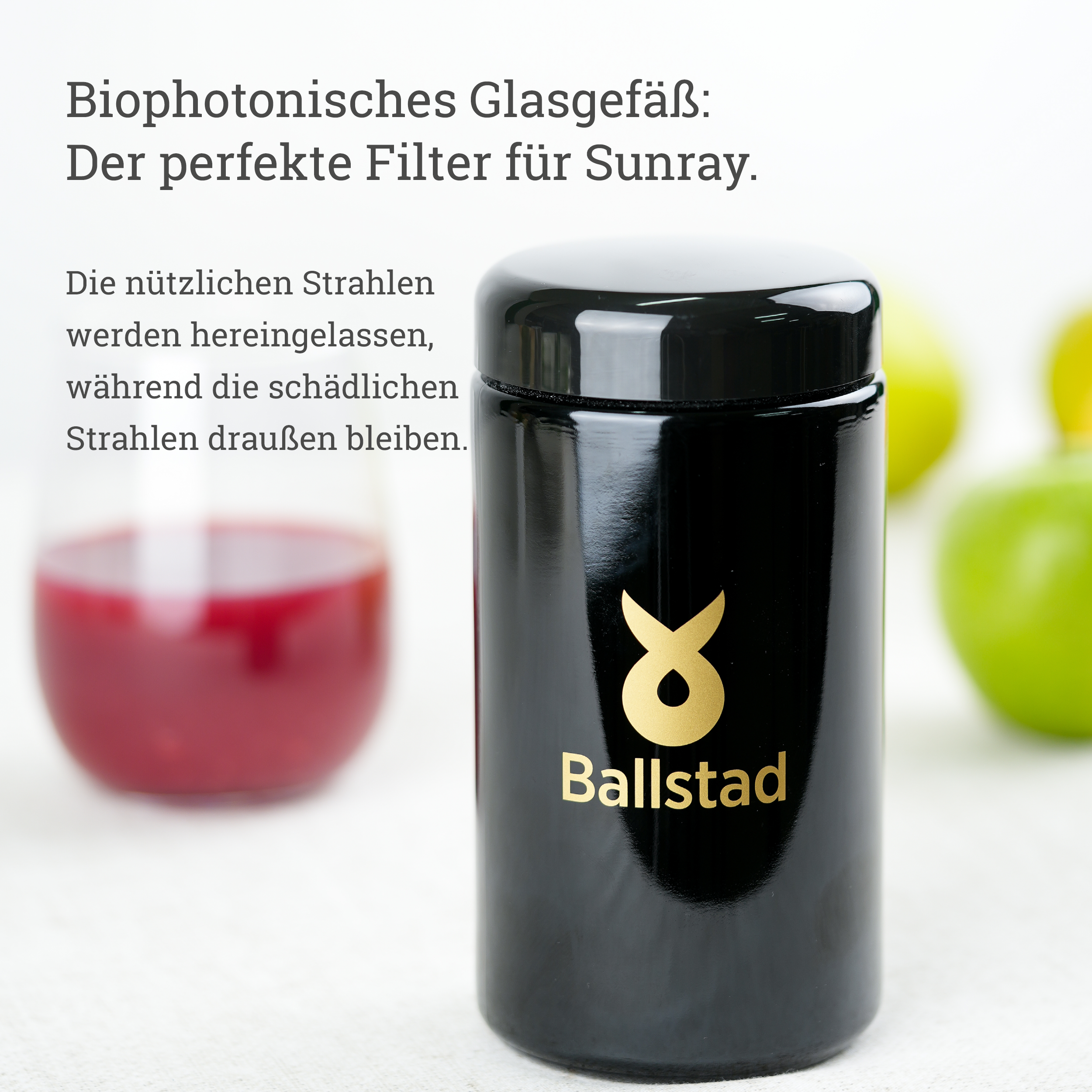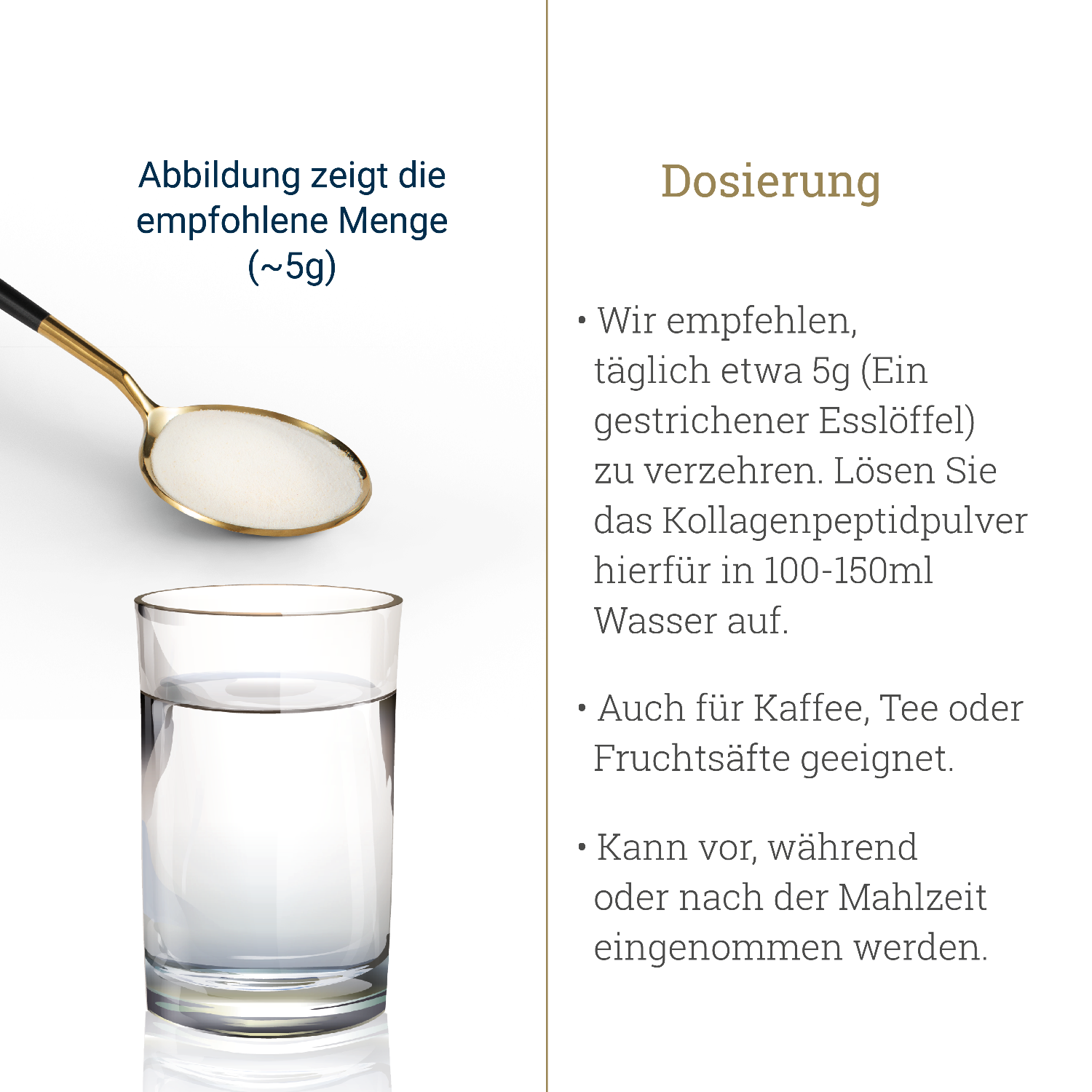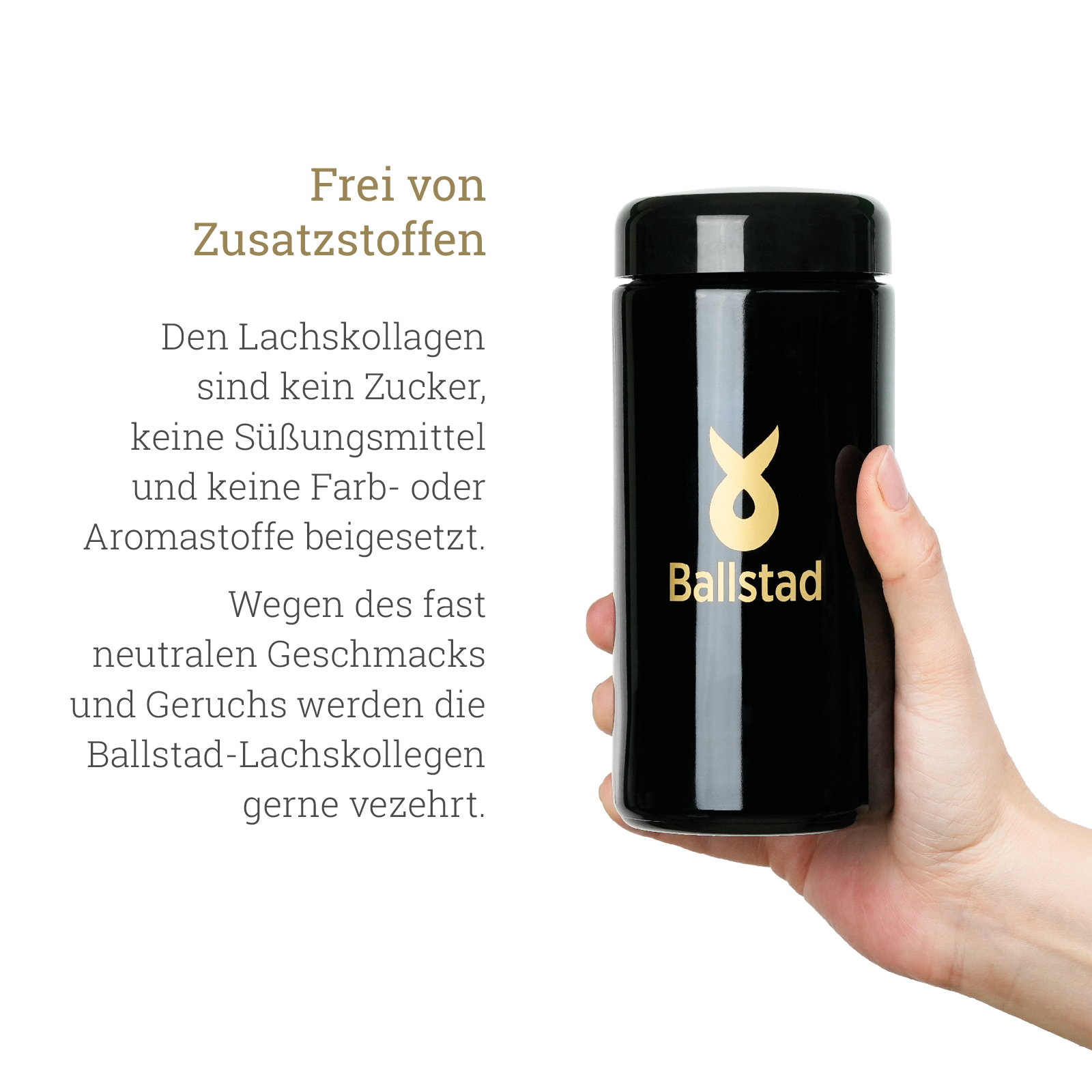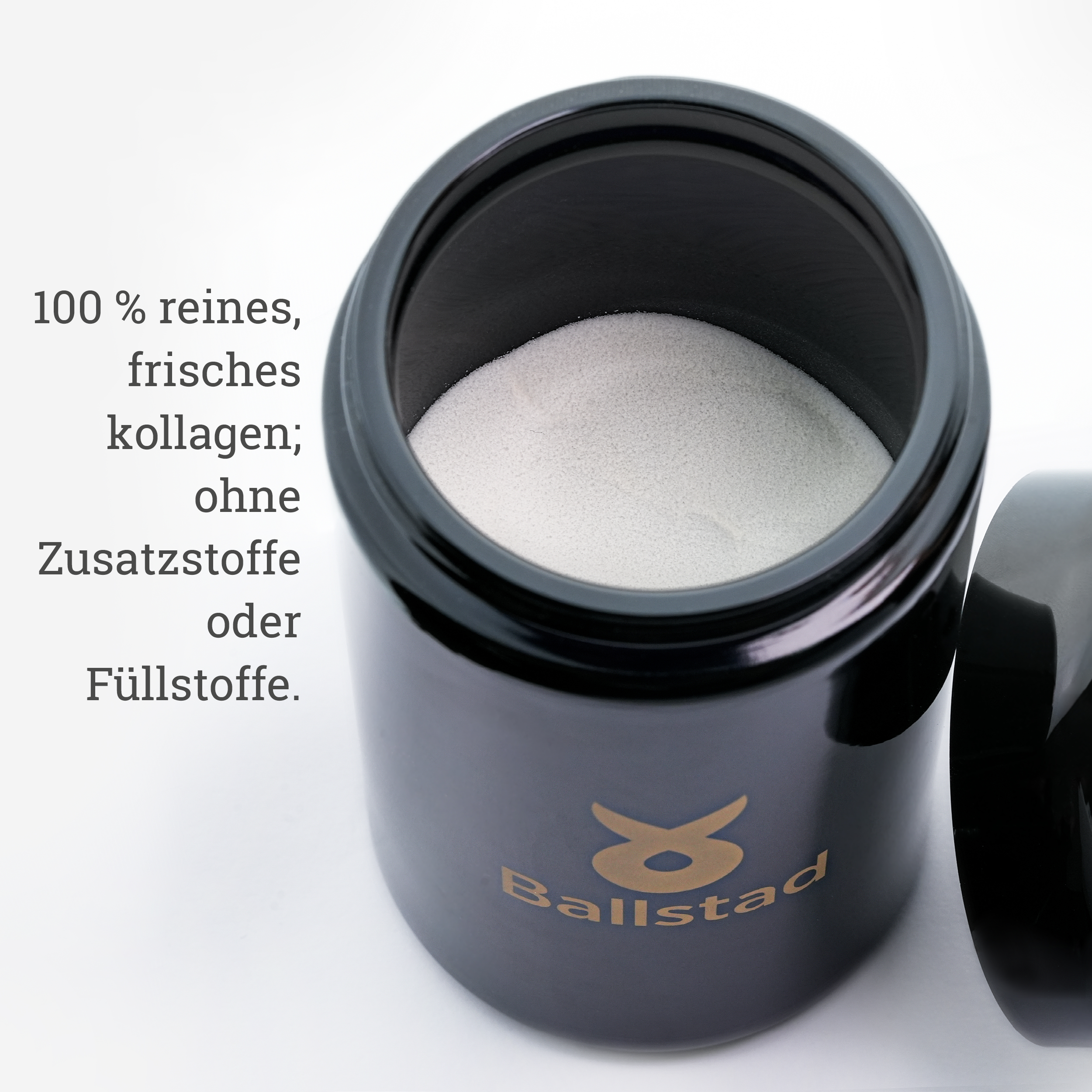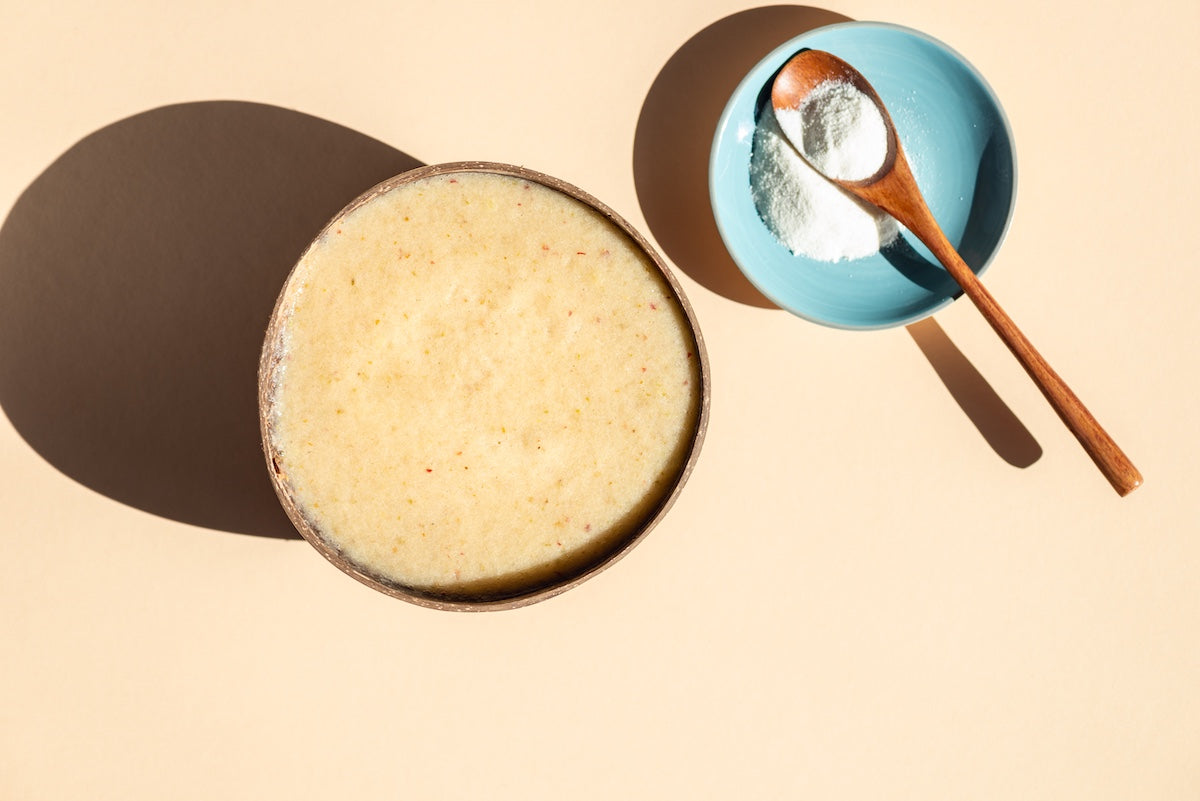If you've ever looked into collagen products, you may have noticed the reference to "low molecular weight." That sounds very technical—but what does it really mean? Essentially, it's the size of the collagen particles after the protein has been broken down into smaller building blocks in a process called hydrolysis.
This particle size is measured in Daltons (Da) . The smaller the particles, the more finely they dissolve in liquids and can be further processed in food—an important factor for product quality.
Why particle size is interesting
Collagen is broken down into small segments called peptides for dietary supplements. These peptides can vary in size depending on the manufacturing process. Products with a so-called low molecular weight—usually between 1,000 and 3,000 Daltons—are characterized by particularly fine particles.
This is primarily an indication that the manufacturing process was carried out carefully and that the powder can be easily distributed in food or drinks.
Fish collagen as a special source
Marine sources, such as fish collagen, often naturally have a lower molecular weight than collagen from beef or pork. Many manufacturers value this property because it allows for a particularly fine powder during processing. The selection of raw materials and a gentle manufacturing process are crucial here.
What to look for when choosing
Anyone who wants to buy a collagen product can look for transparency from the manufacturer – for example, regarding origin, manufacturing process and particle size.
Products that come from sustainable fisheries , are regularly tested for purity, and do not contain unnecessary additives are recommended. Information about particle size, i.e., "low molecular weight," can be a quality indicator that is helpful in making a purchasing decision.
Note: This information is for general product description purposes only and does not constitute health claims or medical advice .



